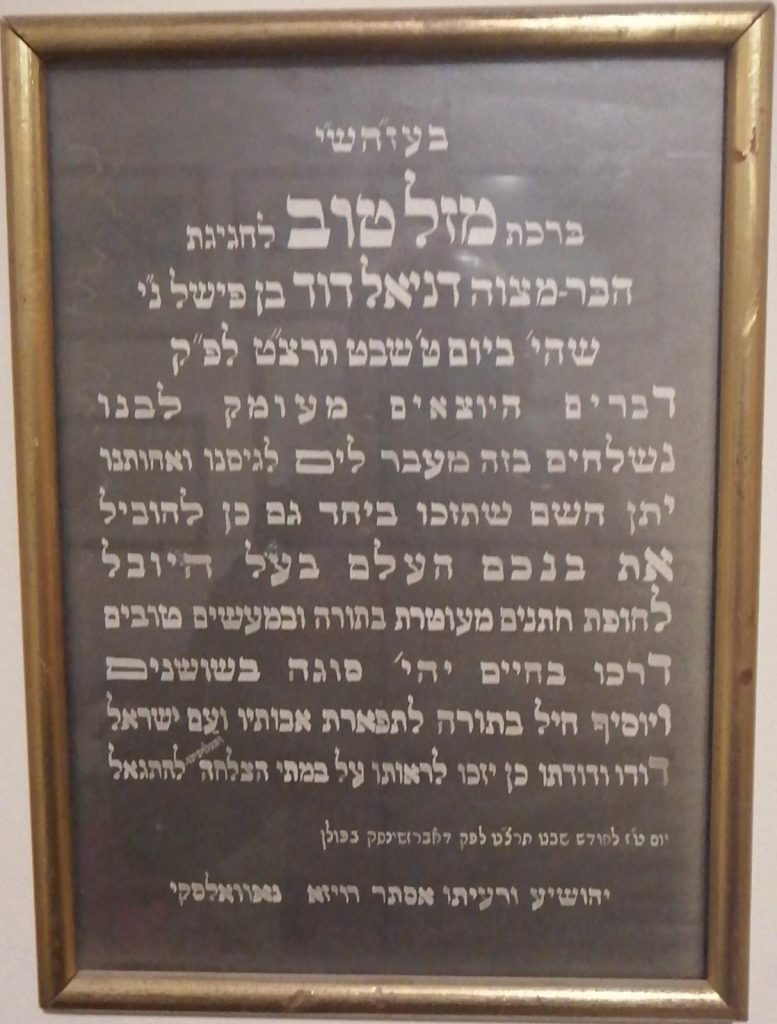Danny Fliderblum-Avivi
1925-2004
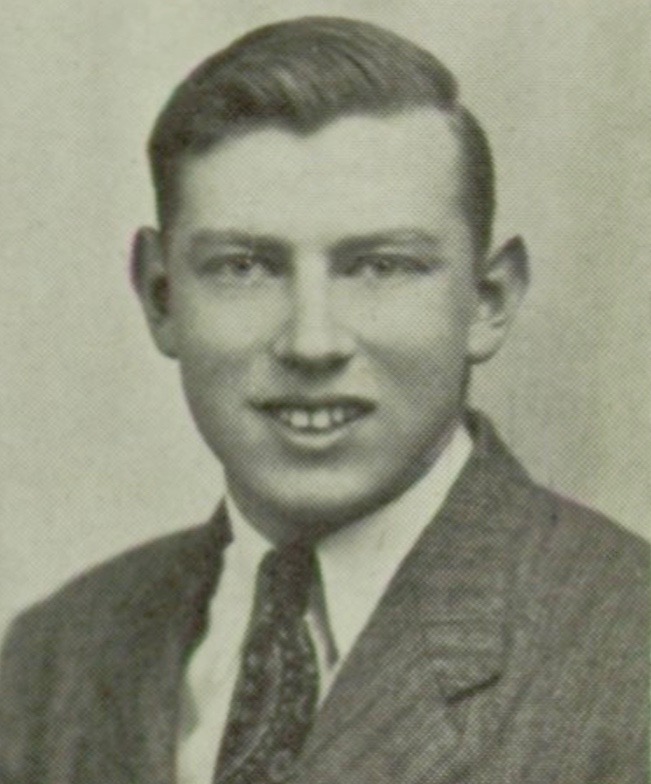
Danny Fliderblum (Avivi) was a genius electronic engineer. At 21, he was recruited by the Sonneborn Institute. Danny procured United States military surplus and oversaw the production of a secret radio network to link isolated Jewish frontier Settlements. As the editor of the Israeli Air Force Magazine, Pommy, published in 1971 parts of Leonard Slater's book "The Pledge," about secret procurement affairs in the United States, prior to the establishment of the Israeli Air Force. Issue no. 86, prologue states (see below articles), "It may have been the first time since The Bar-Kokhba Revolt that the Jewish people were called to help their brothers not by lobbying, not by financial aid or by philanthropy, but by giving them weapons, guns, rifles, ammunition, ships and aircrafts. American Jews did not shy away from any risk and difficulty in helping Israel at its great hour.” Pommy, was unaware that his second cousin (whom he did not know exist), was one of the most important discoveries of the Sonneborn Institute. The information and family connection, presented here, were discovered, following Pommy’s death.
The Nordenberg sisters Ruchlla and Rebecca were born in the city of Plock, in the Warsaw district, on the Vistula river in central Poland. Their family numbered 3 girls and 4 boys. Ruchlla Zylberberg nee Nordenberg was born in 1887. Ruchlla married in Plock Wolf-Zelig Zylberberg. The couple had 4 sons and one daughter. She and her whole family, with the exception of one son who fled to Russia, were murdered in the Holocaust. One of her sons who was born in Plock in 1909, was the young painter, Fishel Zylberberg-Zber who was murdered in Auschwitz.
Ruchalla’s younger sister, Rebecca (Rai) Fliderblum nee Nordenberg, was born in 1899. Rebecca emigrated to the United States in 1921. In 1922, she married Philip (Fishel) Fliderblum and in 1925, their son, Daniel (Danny) David Fliderblum (Avivi) was born in Yonkers, New York.
Aaron Pomerantz (Pommy’s father) was a cousin of the sisters, Ruchlla and Rebecca.
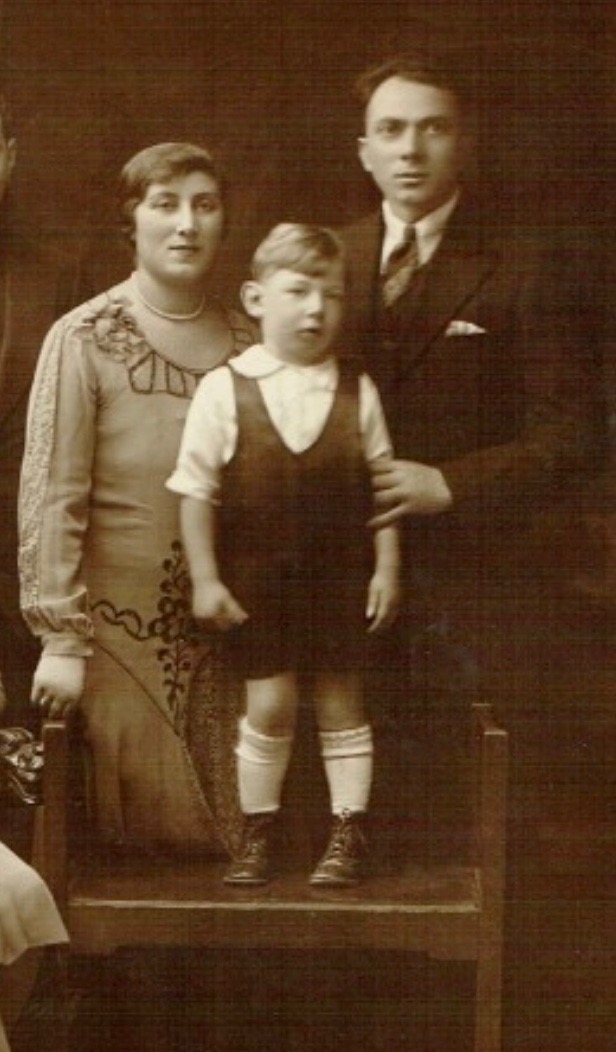
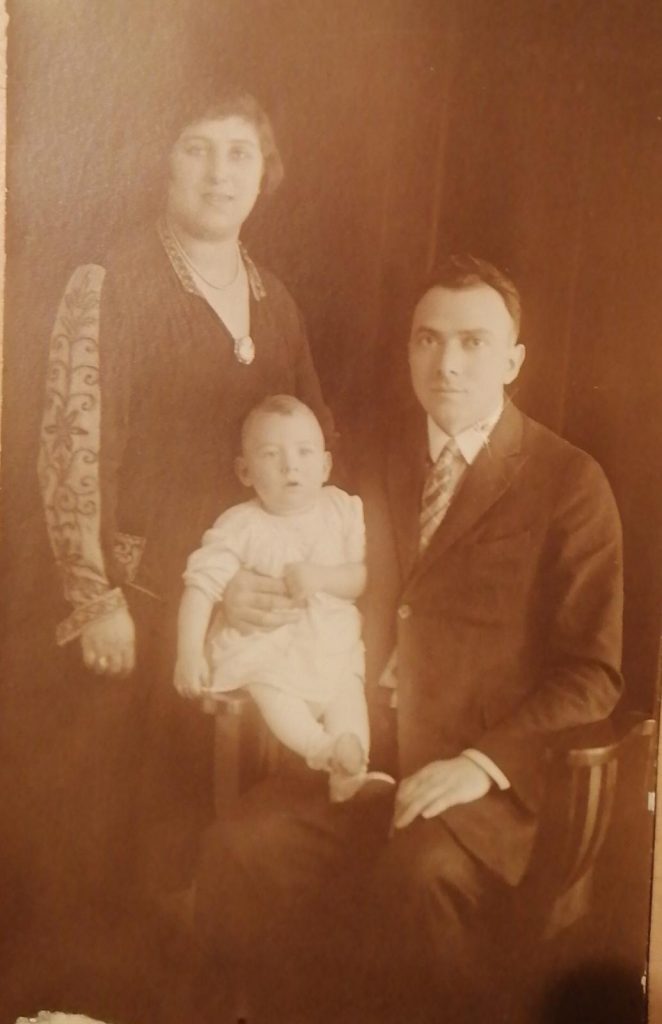
Sonneborn Institute
On July 1, 1945, Sunday at 9:30 am, a tight-lipped David Ben-Gurion met with 17 prominent Jewish businessmen from all over the United States in the splendor Manhattan apartment of Rudolf Sonneborn on 57th street in New York. Ben-Gurion, discussed with them, for eight hours, the expected developments in the middle east, surveyed the situation of the Hebrew settlements and patiently answered the many questions. His urgent message to the group was that the Jews of Palestine would soon fight a war with the well-equipped five Arab states and the Jews could be defeated. The defeat would come not because of a lack of resolve. After the tragedy of the Shoah, fighting for a Jewish homeland was a matter of survival and honor. Eventually, Ben-Gurion reached the purpose and reasons for the meeting, he asked invitees, who were sworn to secrecy, to set up a foundation to procure United States military surplus and help establish an independent Israeli military industry. Ben-Gurion understood, that it is not enough to buy military equipment – Strong Israel must mimic the American military might and create a military science, research and development institute. His plea struck a responsive chord with the men listening in Sonneborn’s apartment. Their response was to form a Jewish underground that would purchase and smuggle badly needed supplies and weapons to the embattled Haganah and the Jewish people who were fighting to establish a Jewish state in Israel. Following the meeting and risking a criminal proceeding, as they are about to illegally buy and ship weapons to Palestine, a straw company called "Sonneborn Institute" was risen. The group also helped smuggle tens of thousands of Jews “illegally” from the ashes of the Holocaust in Europe to Israel, in defiance of the British pan-Arab policy.
Years later, Ben-Gurion enumerated the Sonneborn Institute among the three greatest acts of his life, alongside his immigration to Israel and the establishment of the State of Israel. (Prof. Anita Shapira, Ben Gurion, The Making of a Leader, pages 124-126)
Investigative journalist, Leonard Slater book, the Pledge (1970), chronicles the Sonneborn Institute heroic operation. Slater writes, “One of the key discoveries in the United States was young American electronics engineer from the New York suburb of Yonkers named Dan Fliderblum.” (page 89)
According to Slater, the 21-year-old Fliderblum assembled a group of electronic whiz kids, most of them veterans of the Army Signal Corps, whom he trained, at the University of New York, during the war and who were up on the latest gadgetry. They created a secret radio network to link the isolated settlements in Palestine and forewarn them of British search parties seeking illegal arms. During their free time, after work and after school, they gathered in a loft in New York City. Slater writes, “They manufactured a handsome radio set in a mahogany veneer case which even bore its own trade name: Musica. Actually, it was a transmitter disguised as a receiver; the only difference was in the crystal.” (page 89)
Next Fliderblum began scanning surplus stocks of radio equipment for items that might be useful. He turned up dozens National MC57 receivers and two dozen Hallicrafter S-38s, which were purchased and sent to Palestine. One day he came across a bonanza: nearly one hundred excellent sets, good as new. He reported his find the his “handler,” Jacob Dostrovsky, who was the chief of staff of the underground Haganah, who was assigned to work at the Jewish Agency in New York (later he became the President of Israel Institute of Technology – The Technion, in Haifa).
Dostrovsky told him to meet him in front of a Broad street building. He then shepherded him upstairs into a brokerage office. An impressive-looking businessman greeted them. After chatting with Dostrovsky for few minutes, the man, nonchalantly opened a vault, lifted out a large stack of bills and handed it over to Dostrovsky who handed them to Fliderblum. “The man who so obligingly had produced the money was Louis Rocker, a highly regarded stockbroker whose personal vault had become the underground’s bank.” (page 90)
Danny Fliderblum was fitted with a special company. Radio Communications Engineering had an office at 245 Fifth Avenue, letterheads, and all the trappings of an up-and-coming concern engaged in buying and exporting electronic equipment. It even had its own small plant for reconditioning used equipment. It had gotten into this sideline, Fliderblum recalls in The Pledge (page 196), because “we were buying SCR 300-s – the standard infantry walkie-talkie – and we wanted to make sure they were in working order when they were shipped. This got us into even more details. We were controlling tens and thousands of minute items – not only procuring complete equipment but even looking for the smallest parts…We got to be walking catalogues…became consultants for some of the suppliers because we were more familiar with the surplus than they were.”
Another warehouse was needed to discreetly house the “black goods,” which could not be sent to MFP’s four New York warehouses. They bought 40,000 square feet building, under the name of Irving Strauss, a businessman. It was located in Metropolitan Avenue in Brooklyn, which formerly had housed a meat-packing and canning plant. They formed the Sherman Metropolitan Corporation to cover the operation of the new warehouse. Among the canned products of its former tenant had been fruit preserves from California and Wisconsin; some of the old labels were still around. Sherman Metropolitan copied them and continued to ship out the product. With one important difference – the cans now contained gunpowder. The warehouse also became the central collection point for hundreds of guns. In a well-secluded part of the warehouse, they were packed as “used industrial machinery.”
“On the first floor, in front of the building, in full view of any curious passerby, another of the former tenant’s activities was continued. A motherly looking woman in white uniform and cap supervised the assembly-line production of chicken soup.” (page 197)
Leonard Slater, wrote in his book, the United States (unbeknown) became the "supply depot" of the "Haganah" and later the IDF.
It is interesting to note how history continues to intersect, Pommy's brother-in-law, Zvi Levin , was among the Haganah personnel who came to the United States from Israel to procure United States military surplus. When Zvi returned to Israel, he brought with him a pressure cooker. It was the first in Israel.
Danny (Daniel) Fliderblum immigrated to Israel and changed his last name to Avivi. Danny was physically challenged on the right side of his body (as a result of a neurological problem at birth). His disability was the reason why he was rejected from the draft into the United States Arm Forces, and did not serve during World War II. According to his son, Amos Avivi, he never complained or used his disability as a crutch or an excuse. On the contrary, he aspired to spring forward and conquer every goal. After immigrating to Israel, he wanted to join the IDF, but the Israel Defense Forces also disqualified him from military service because of his medical condition. He did not capitulate and activated all the "procurement" relationships he had cultivated over the past many years, in order to enlist and serve Israel the way he “fought” and served Israel in the United States (according to Amos, Danny was wanted in the USA because of his illegal activities. He also carried a Canadian passport). In September 1951, Maj. Gen. Yigal Yadin, the Chief of Staff, informed him in a secret letter that he was appointed as an officer, to head a technical branch, at the Liaison and Communications Corps. Daniel later become a leading figure in establishing the electronic industry in Israel and formed companies such as Elron Electronic Industries and Elbit Systems.
In 2014, I interviewed Uri Avivi (Dan’s cousin), who was living in Moshav Avigdor, Israel. He told me that when Danny met Ben-Gurion, he told him that he works in semiconductors, so Ben-Gurion said, I prefer that you work with full conductors.
Interview with Danny Avivi from the moview The Legacy of the War of Independence
Letter from Teddy Kollek to Chief of Staff Jacob Dori in connection with Danny Fliderblum
Courtesy of Amos Avivi
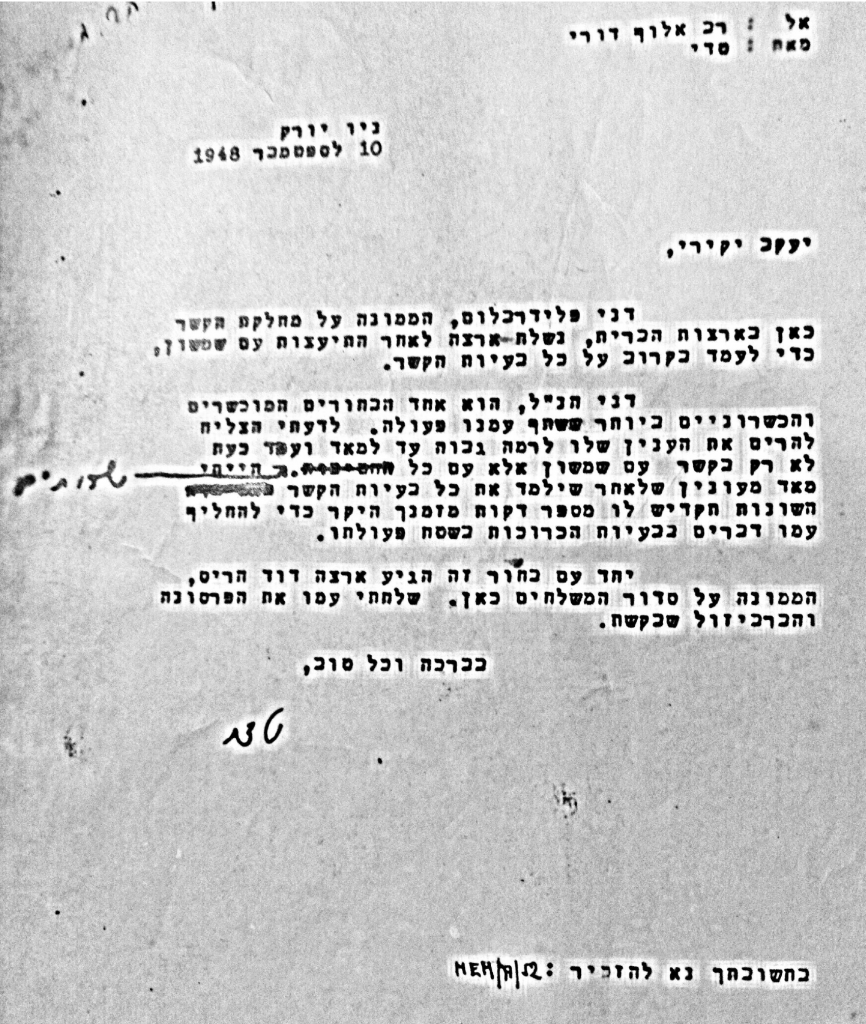
Letter on behalf of Daniel (Danny) Fliderblum’s effort and contribution to the State of Israel, from Meir Sherman, who was one of the Israeli procurement leaders in the US
Amos Avivi, Danny's son, said that his father used to print reduced quality price labels, in local office supply store, in New York and attach them to radio parts, in order to lower the "quality" and get it at a discounted price.
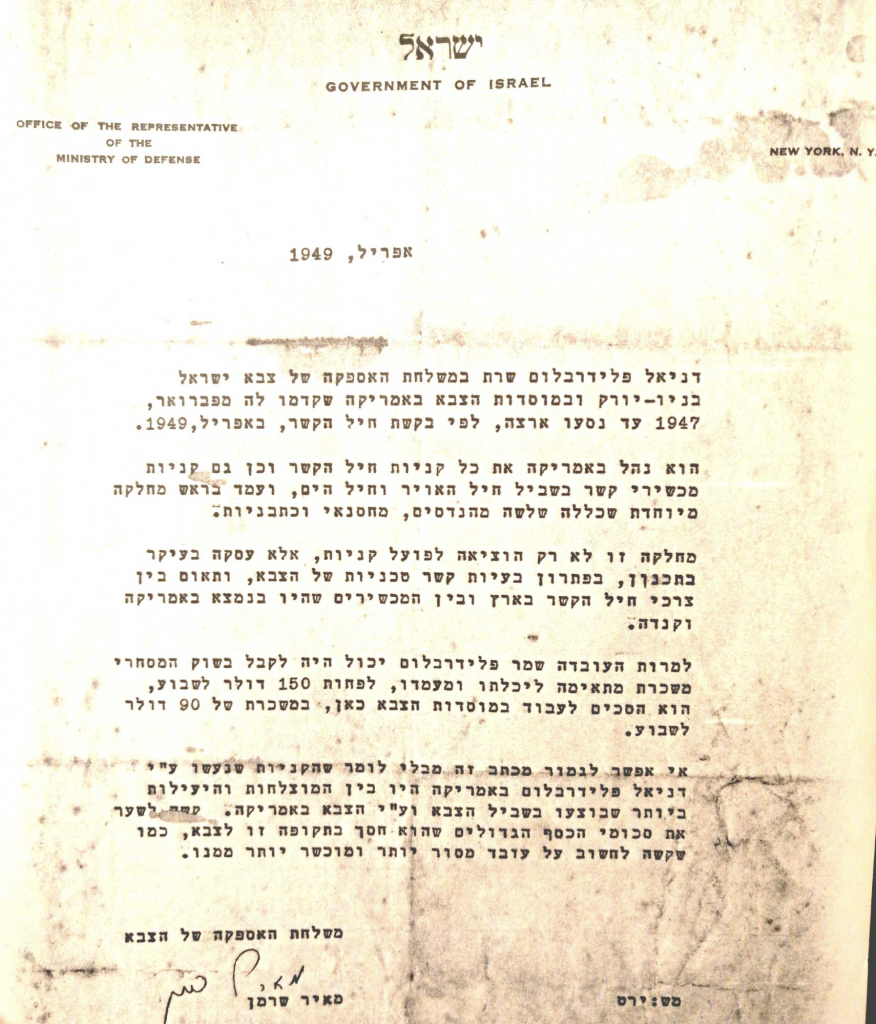
Handicap is only a word
In September 1951, Maj. Gen. Yigal Yadin, Israel Army Chief of Staff, informed him, in a classified labeled letter "secret", that he was appointed as an officer, to head a technical branch, at the Liaison and Communications Corps.
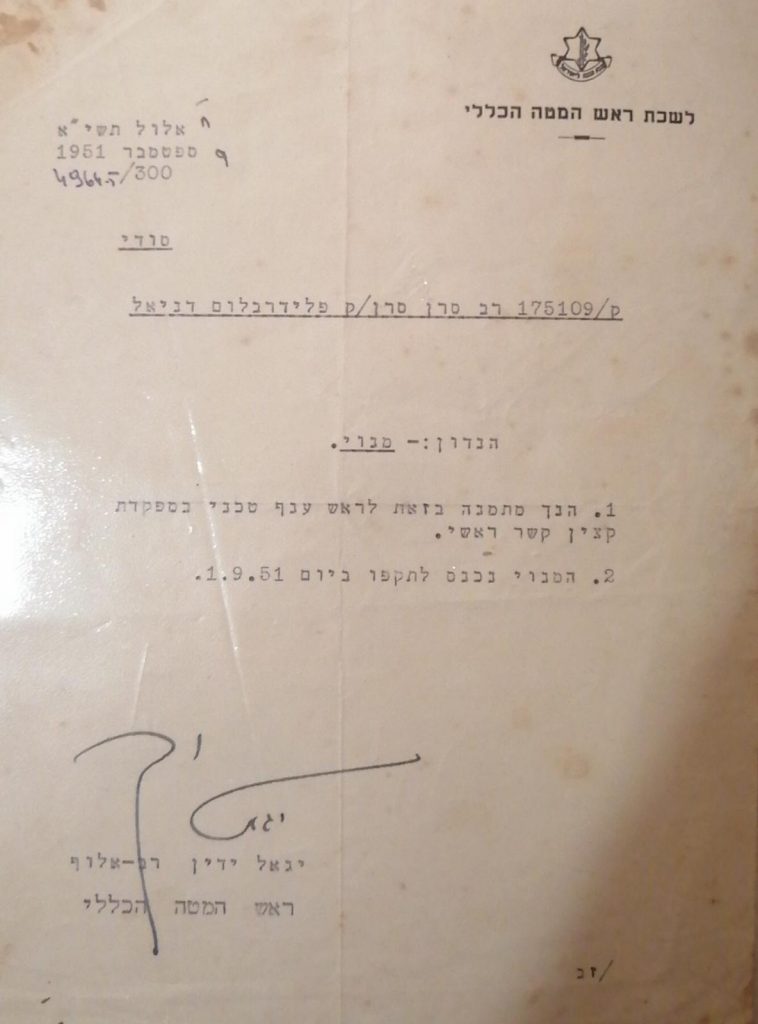
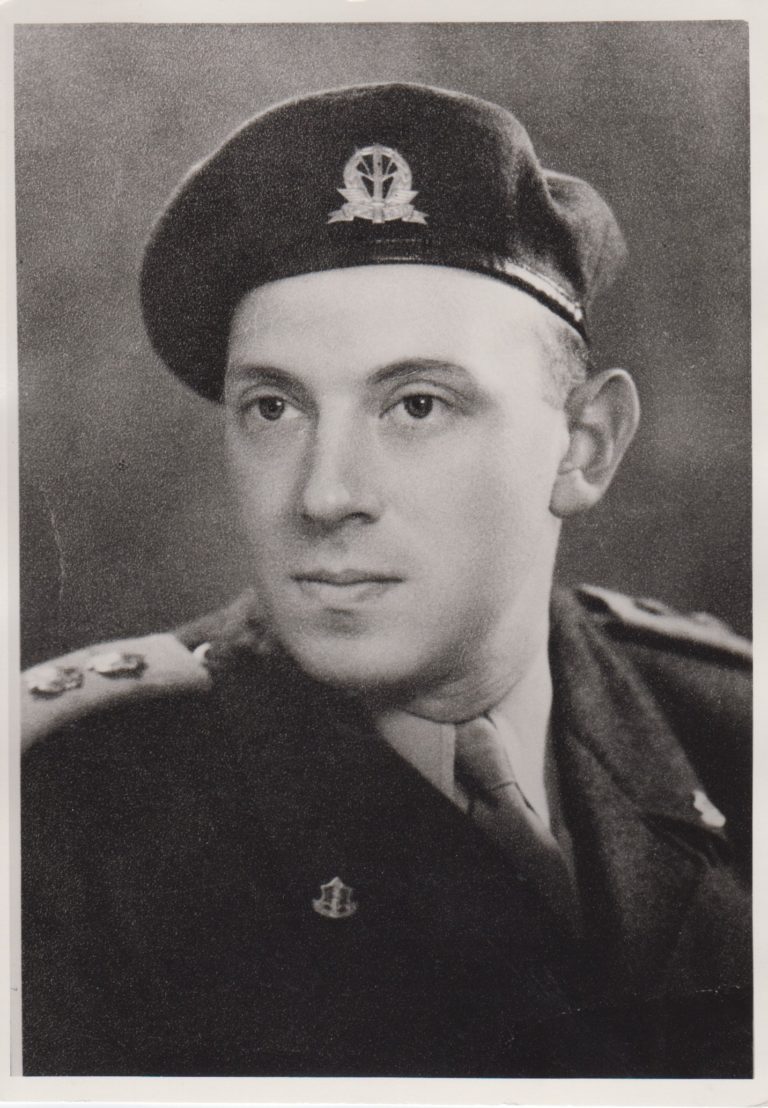
Danny David Avivi 1950's
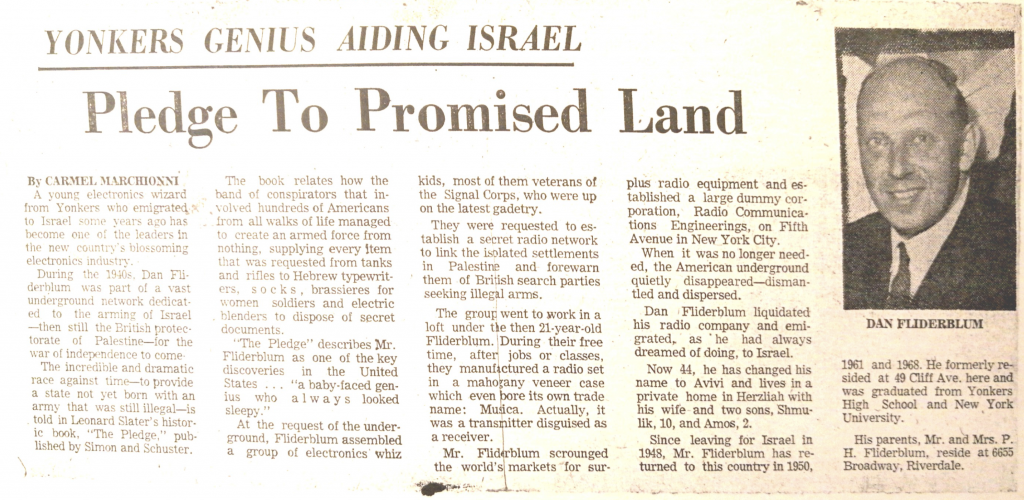
Chapters from Investigative journalist, Leonard Slater book, the Pledge (1970), as they appeared at the IAFmagazine no. 86- December 1971 and no. 87- March 1972
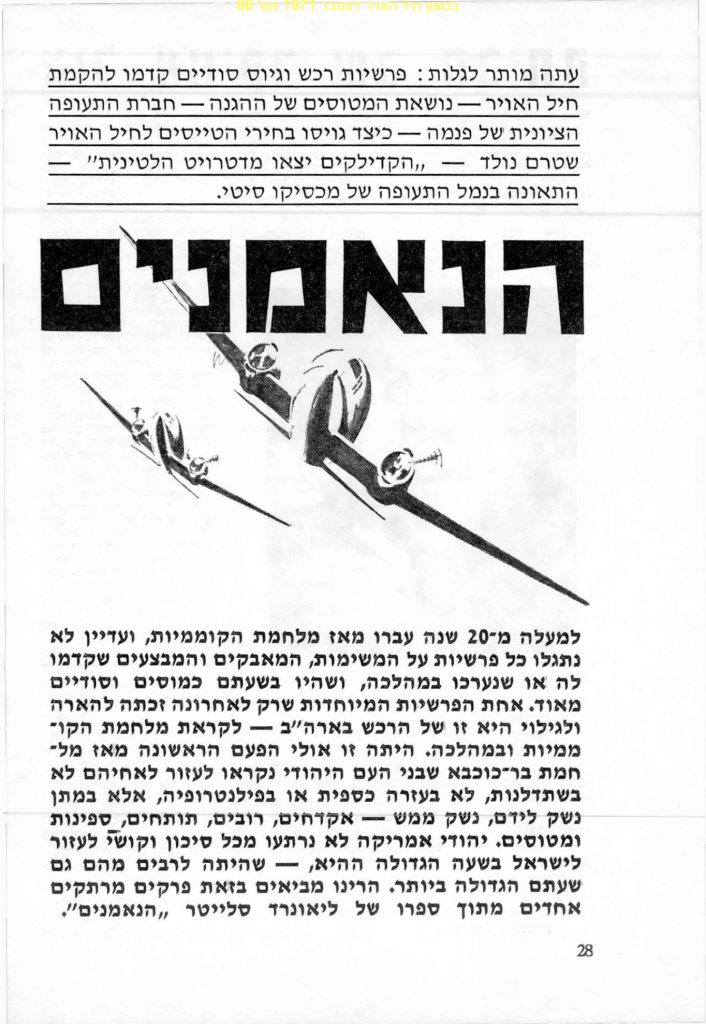
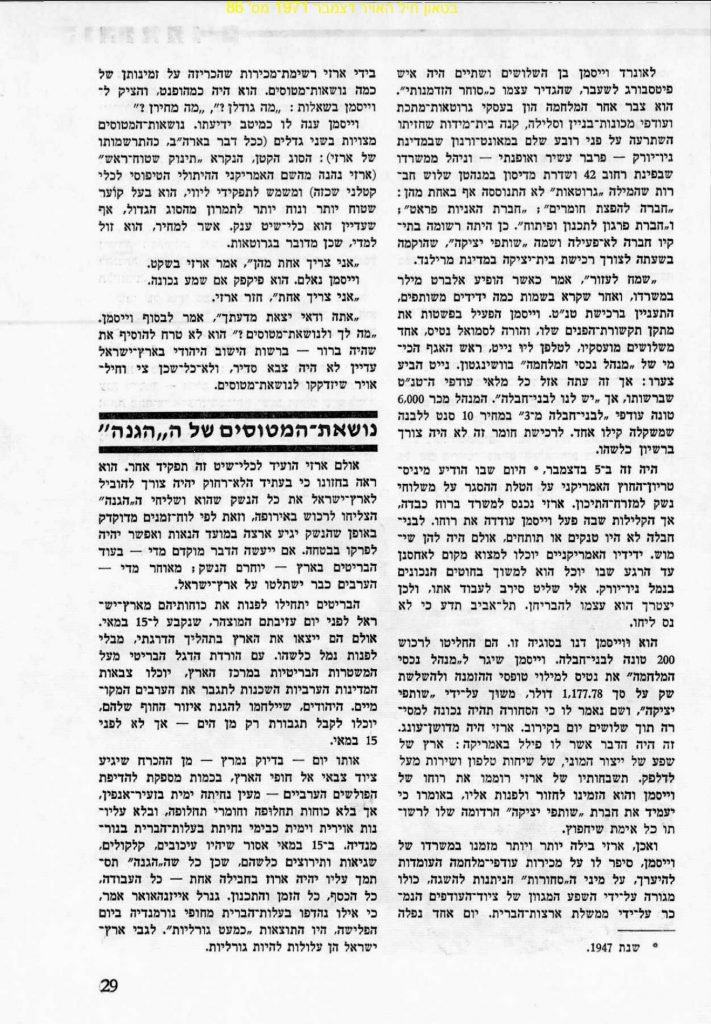
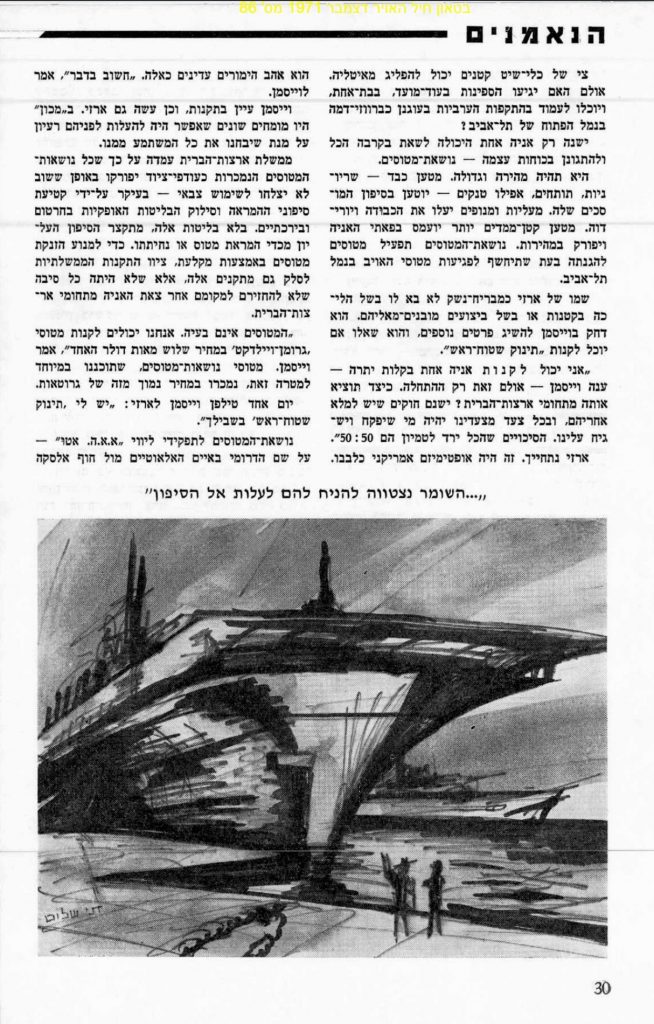
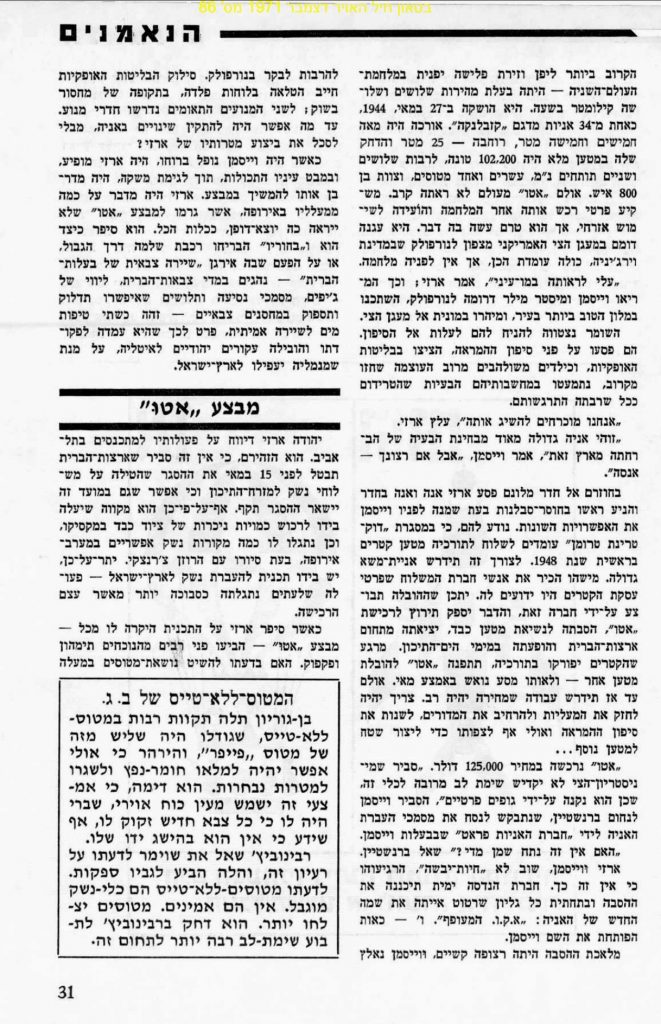
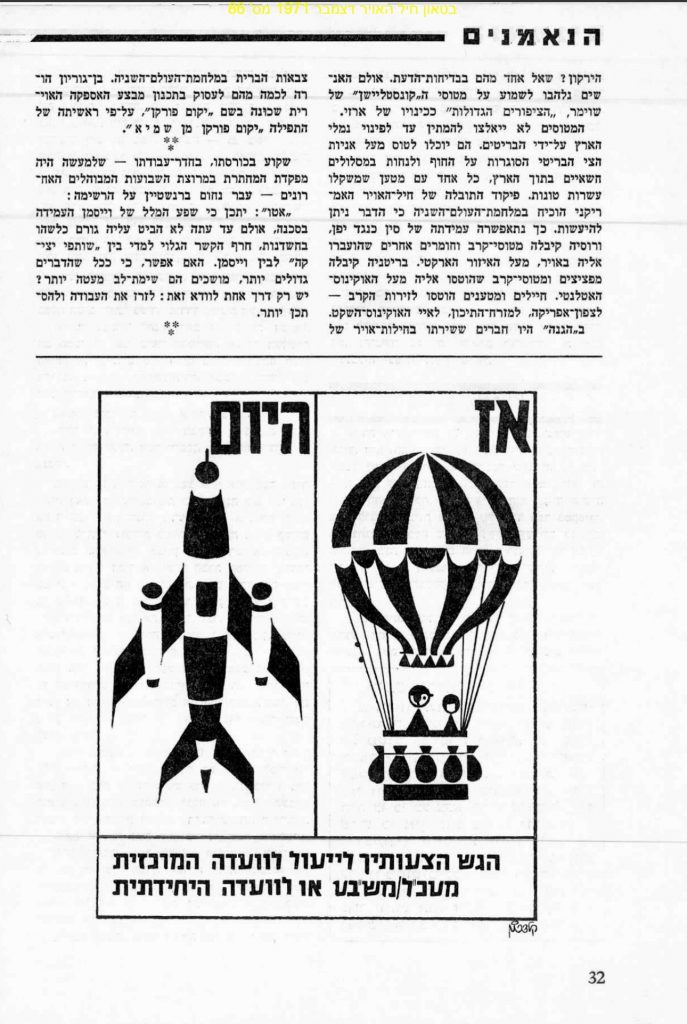
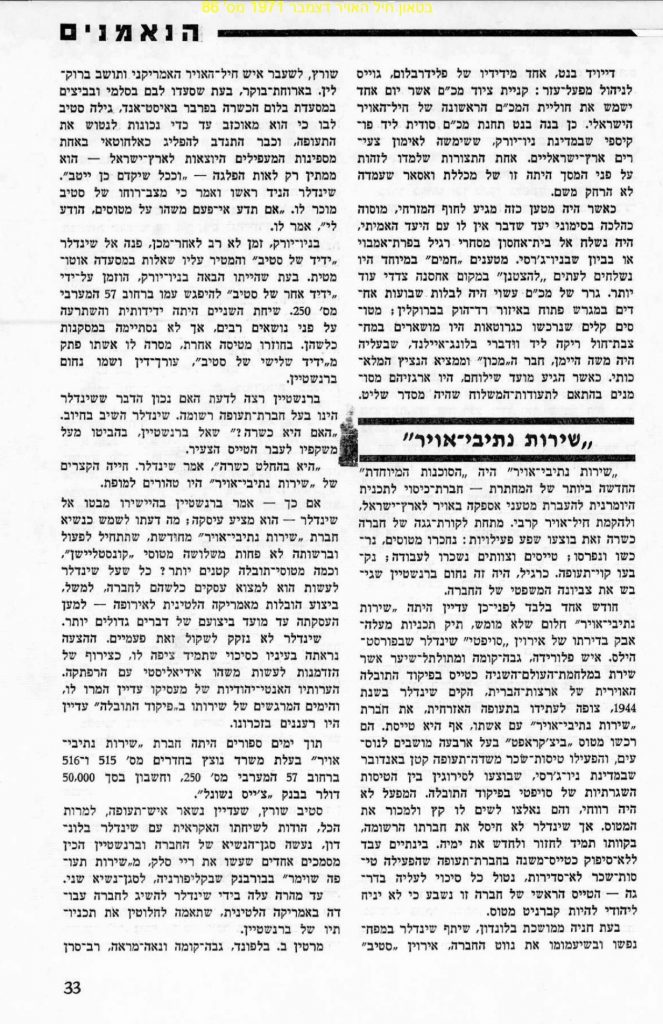
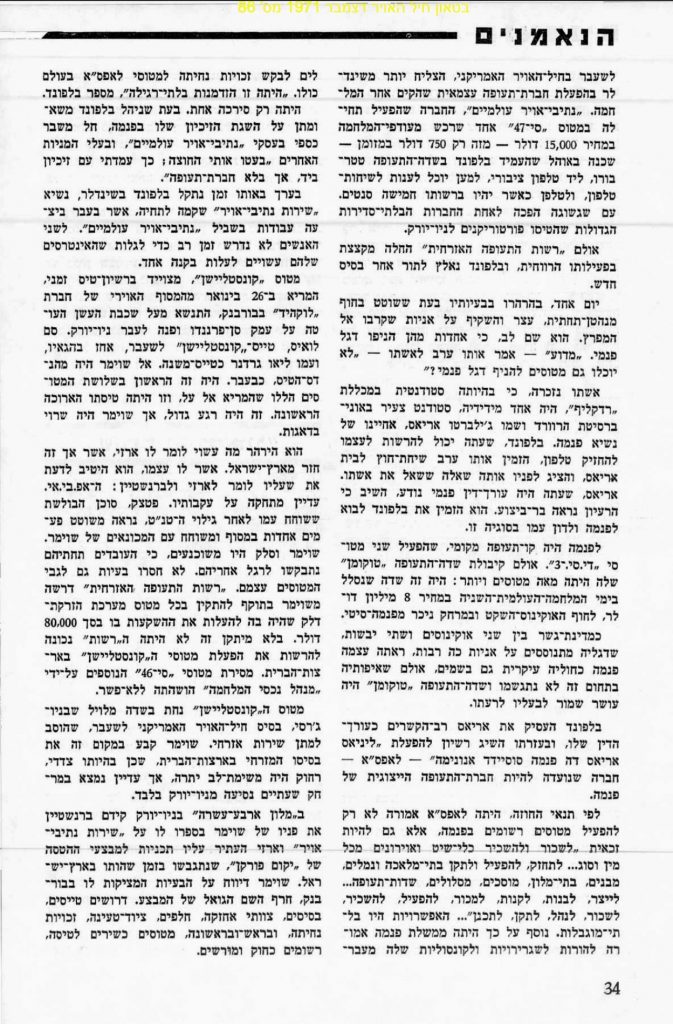
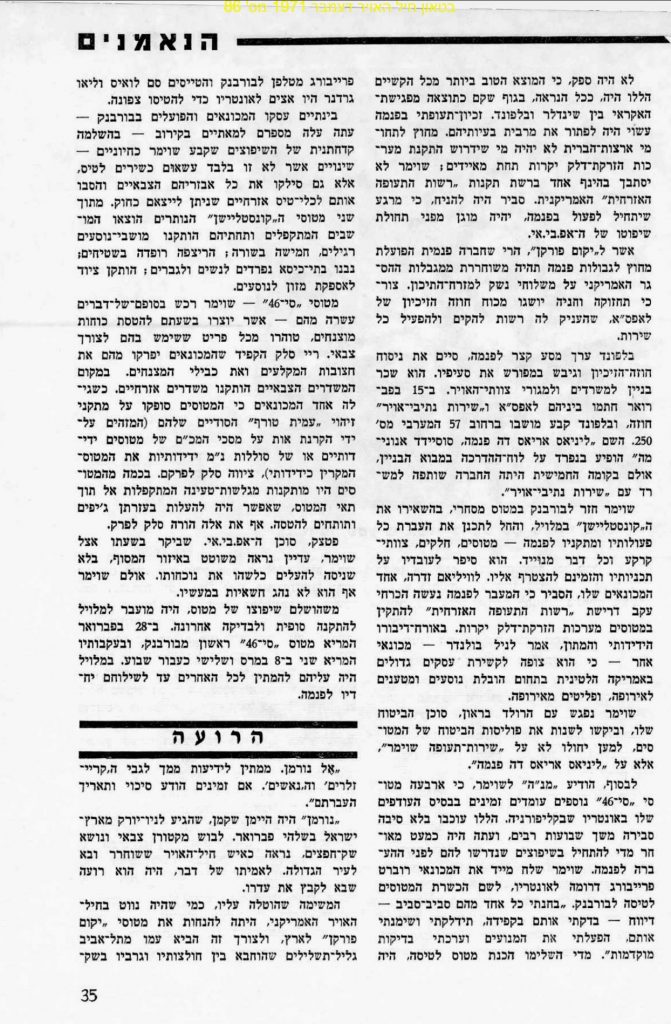
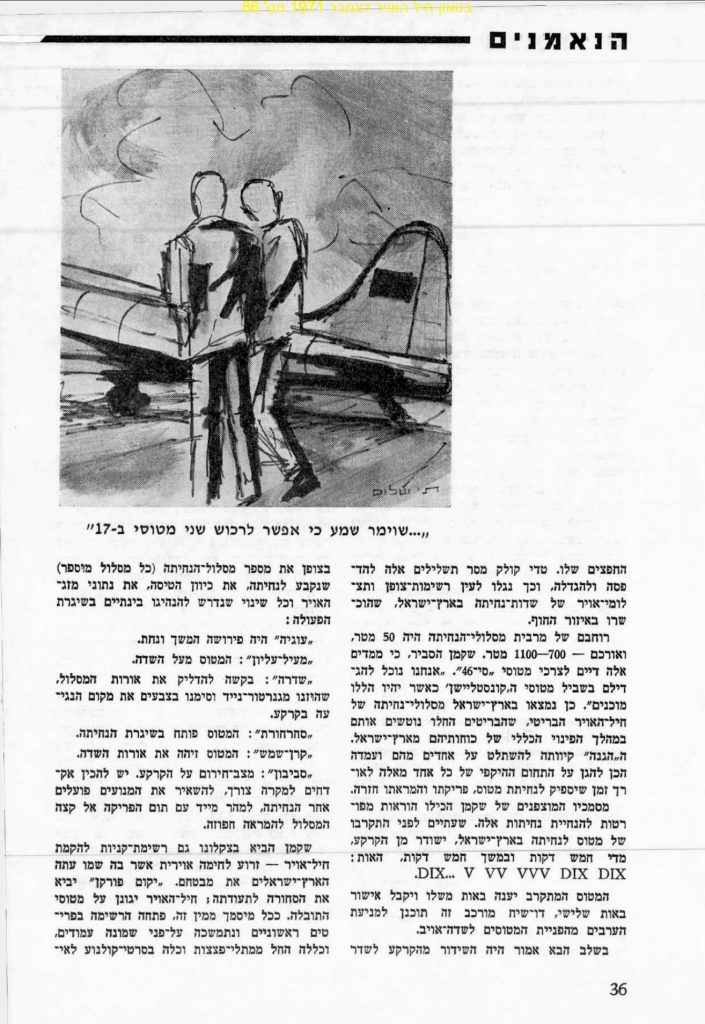
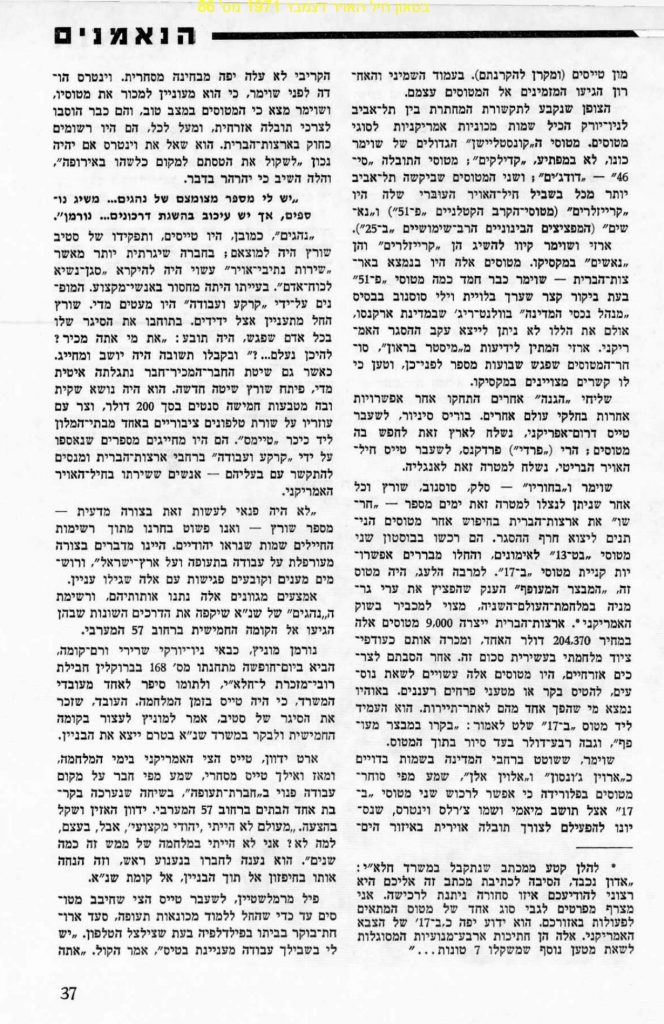
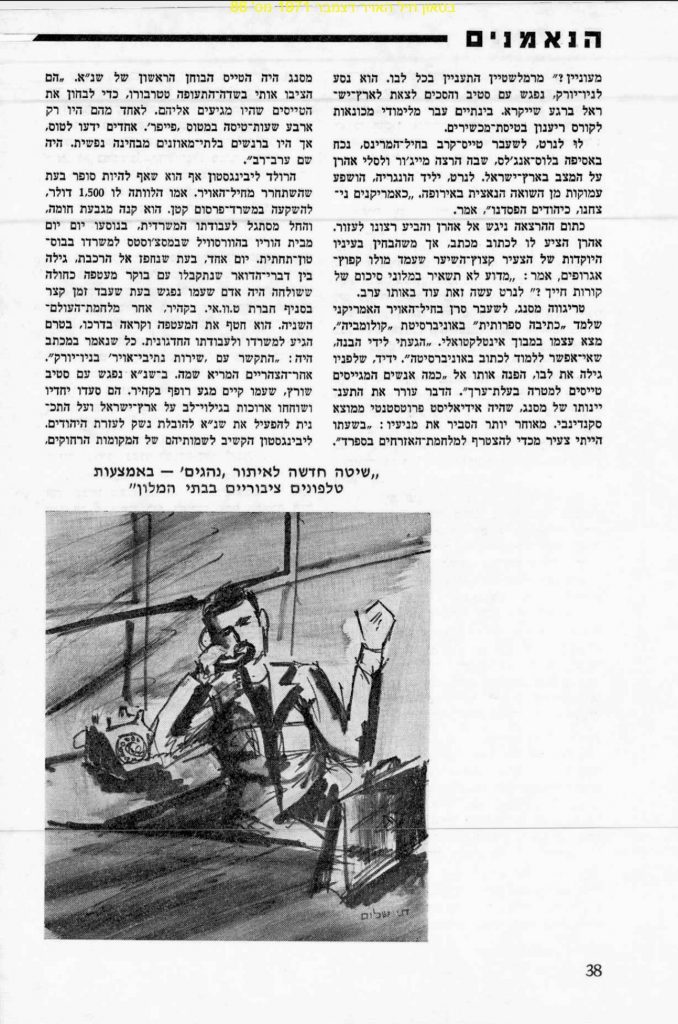
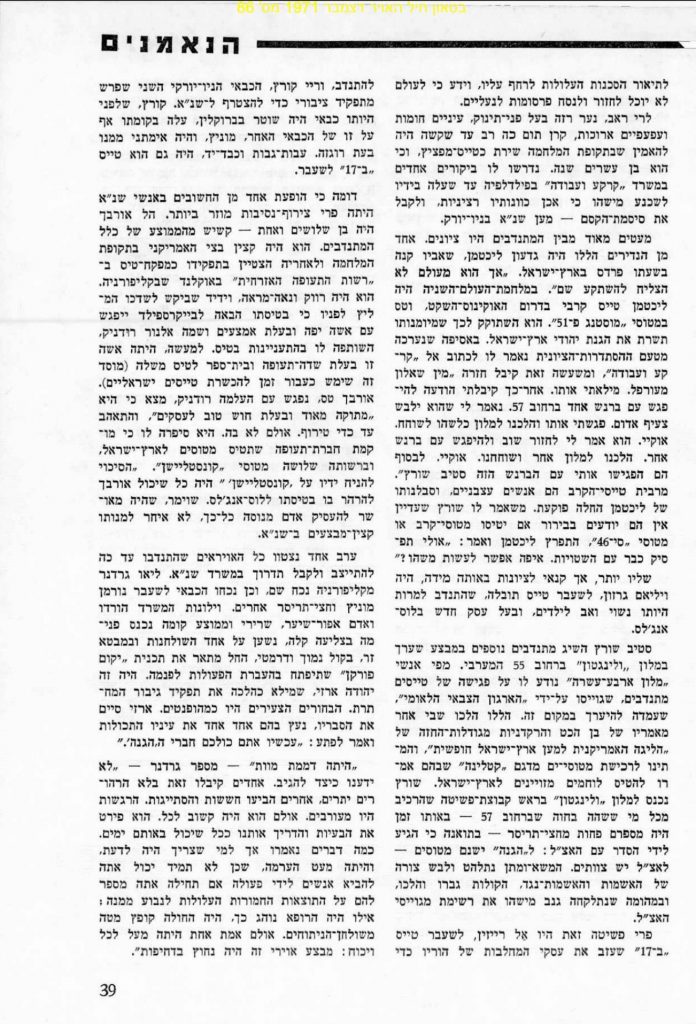
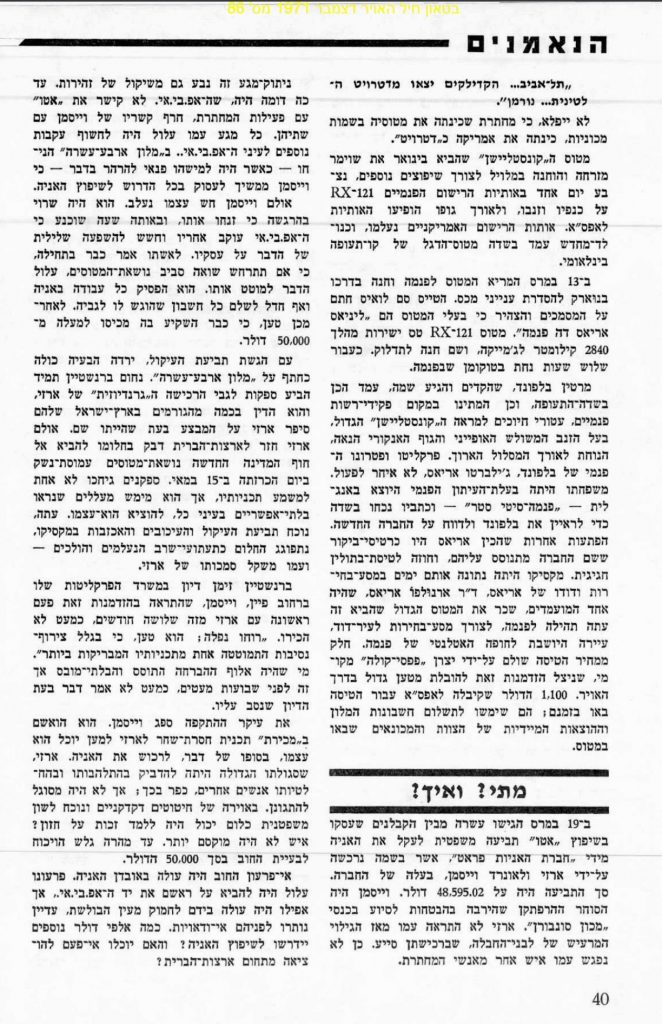
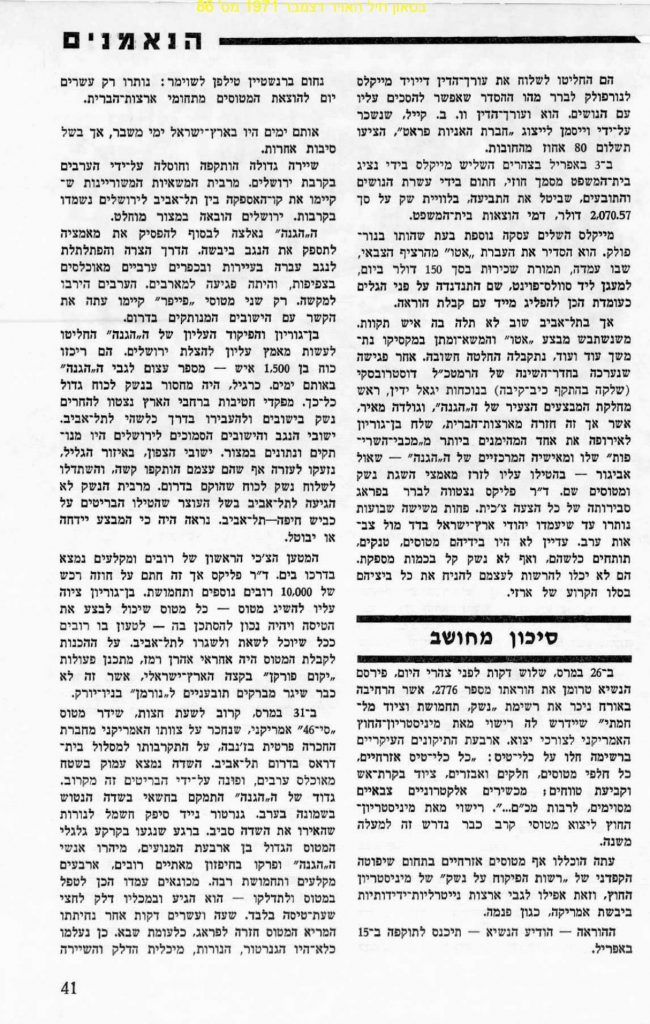
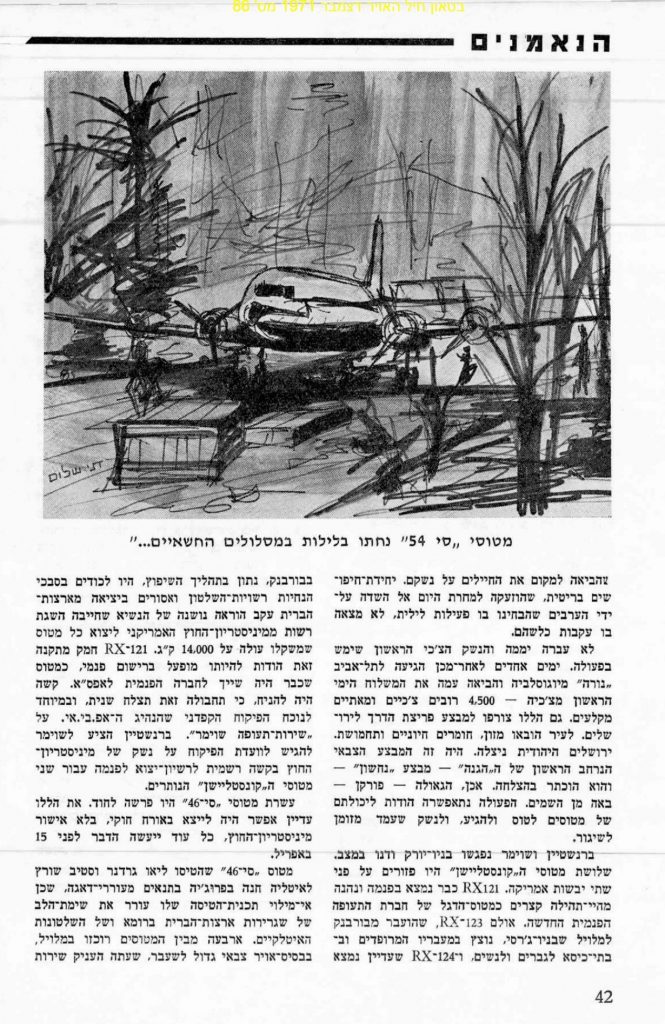
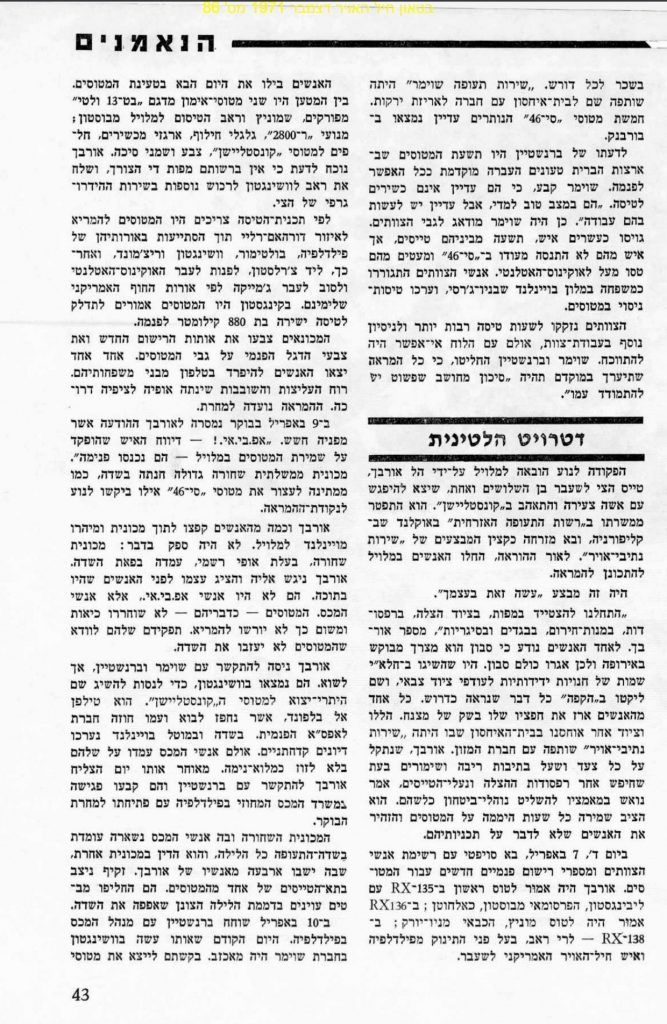
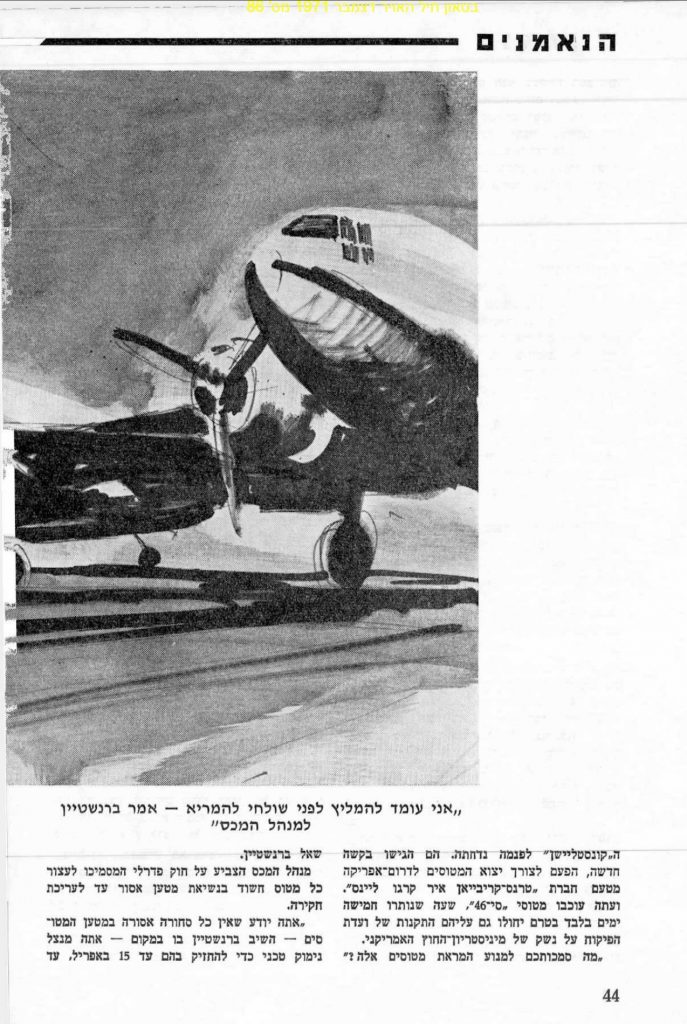
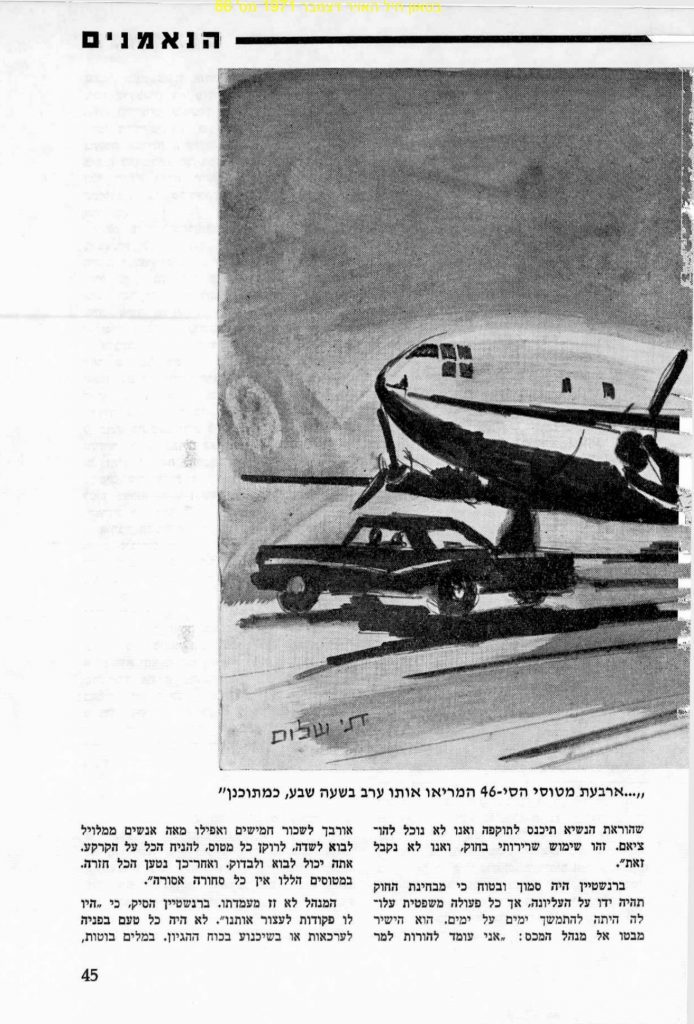
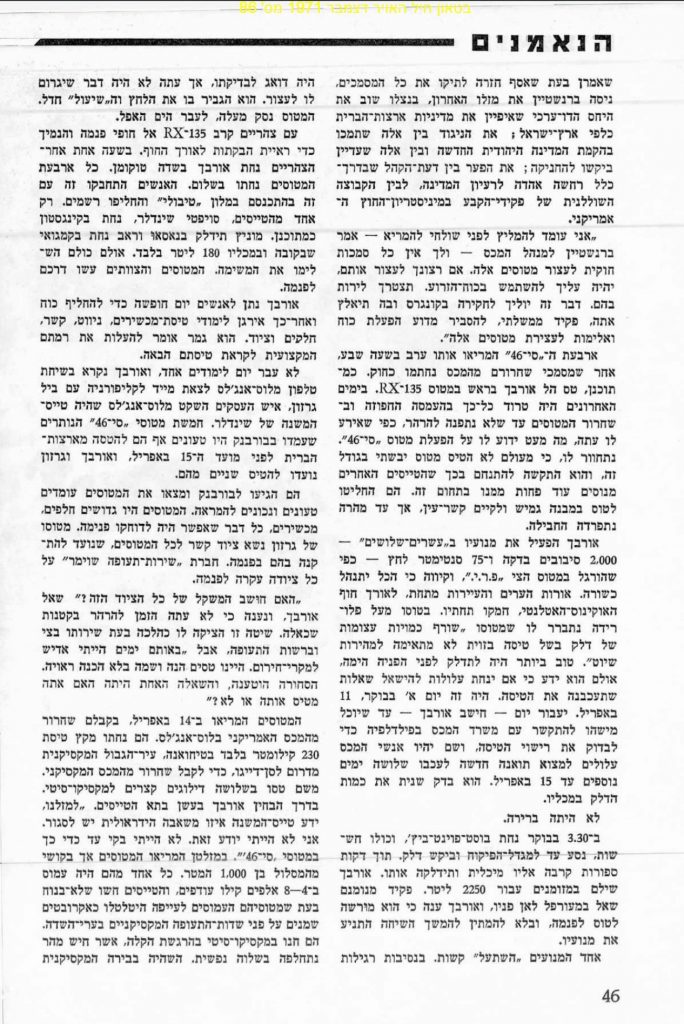
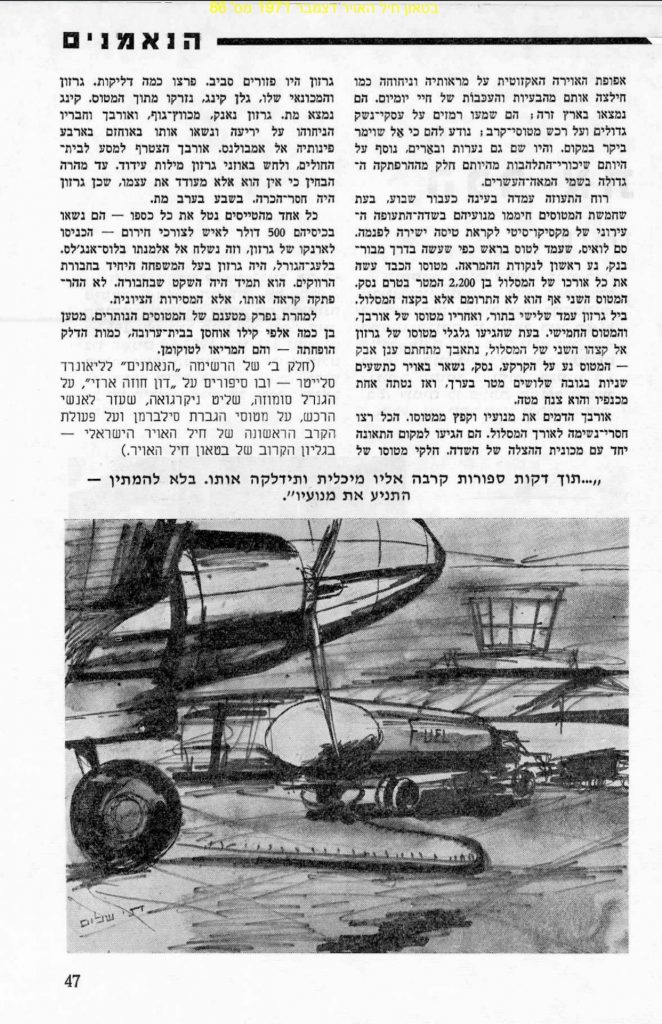
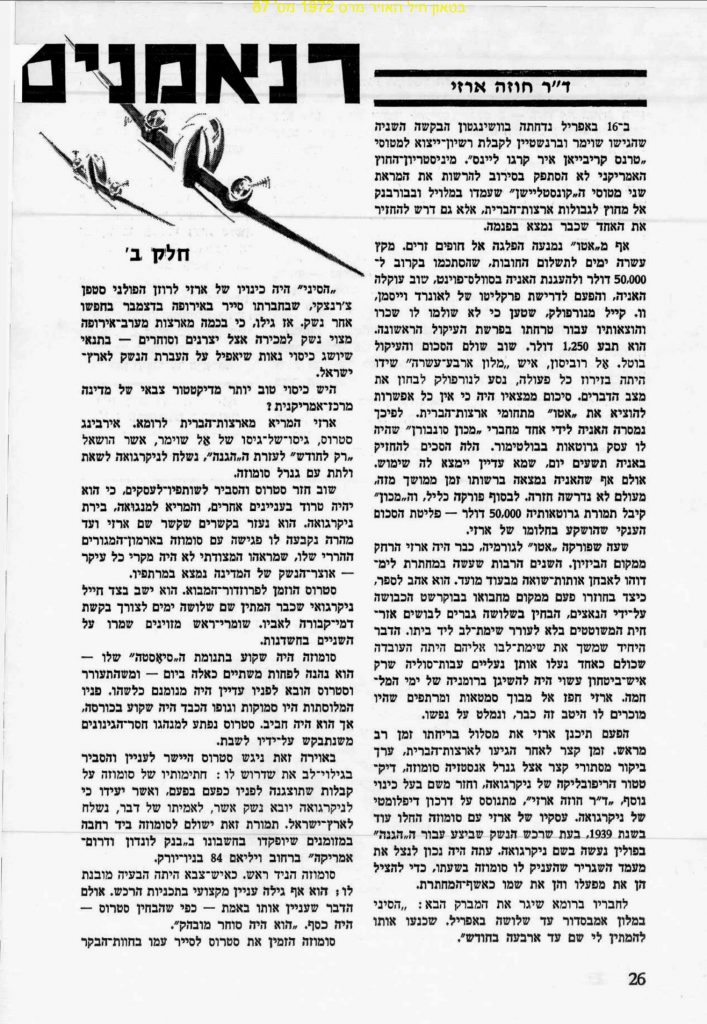
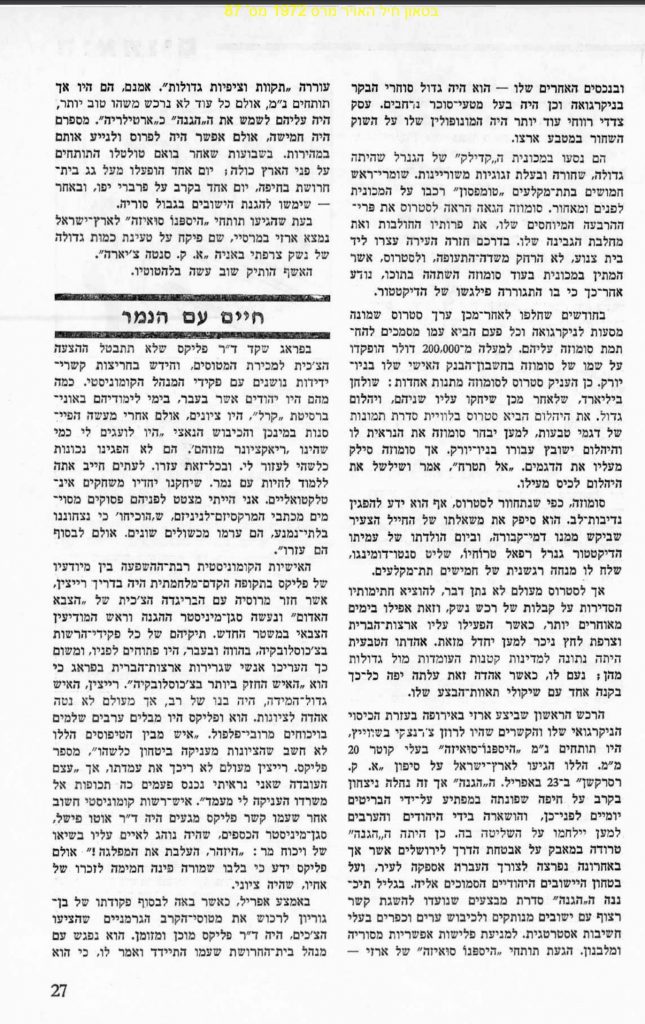
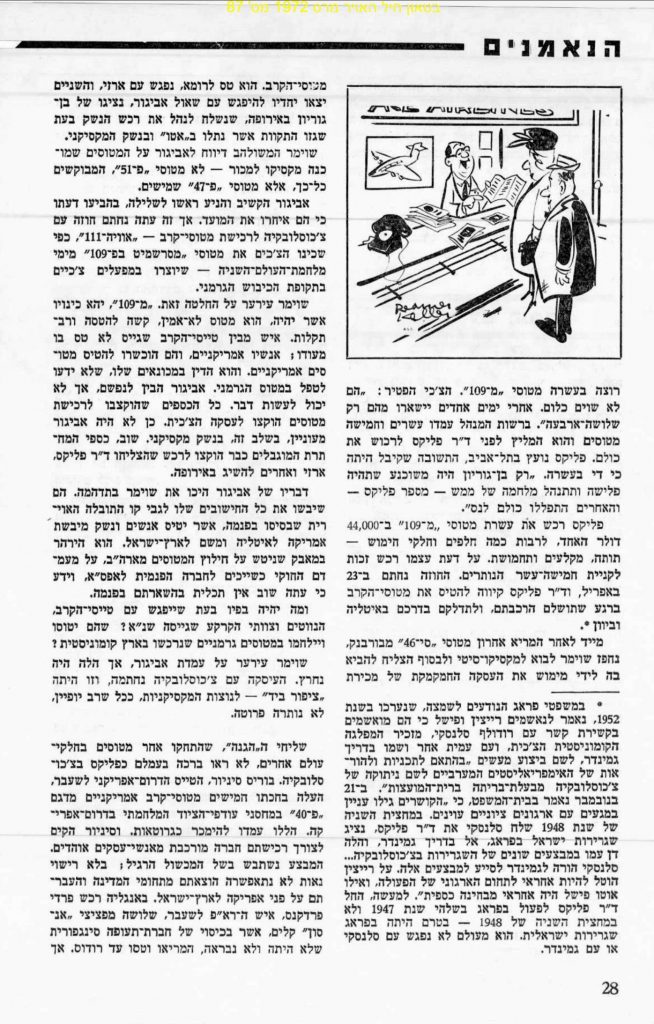
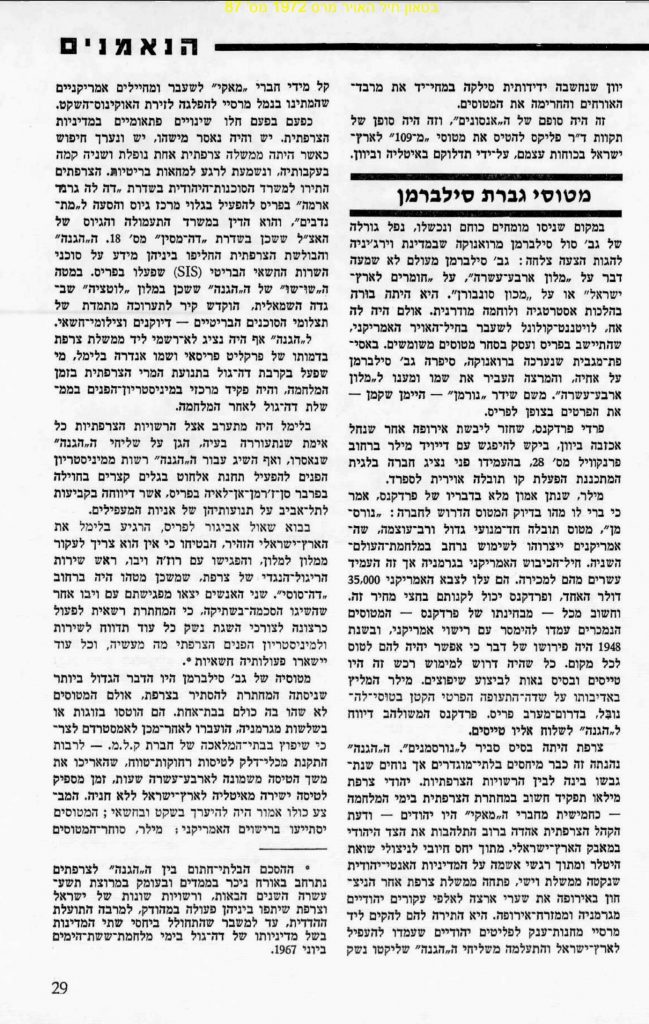
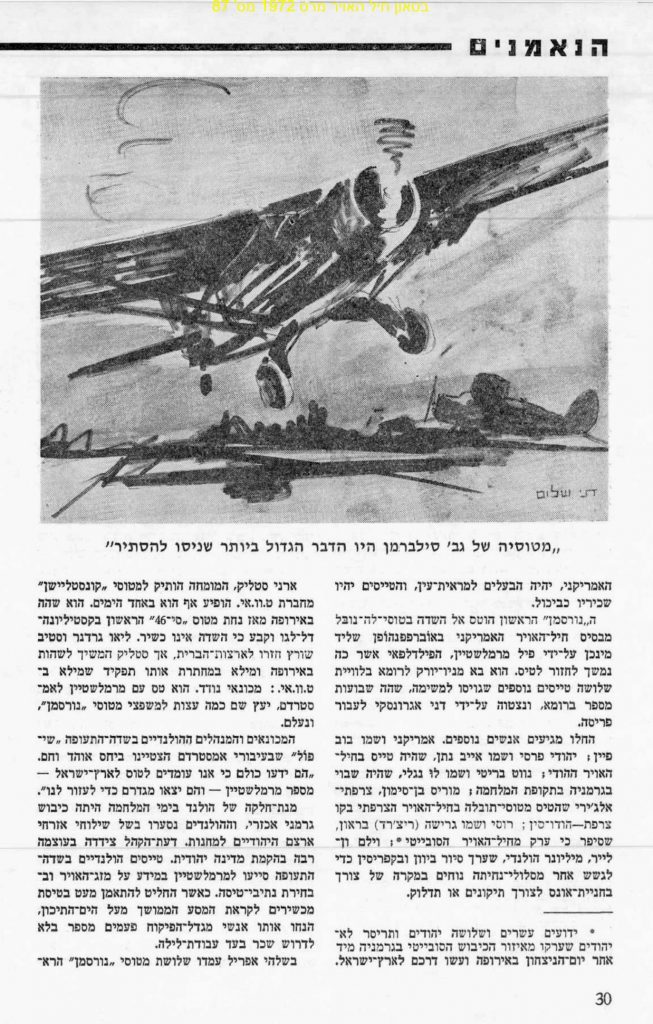
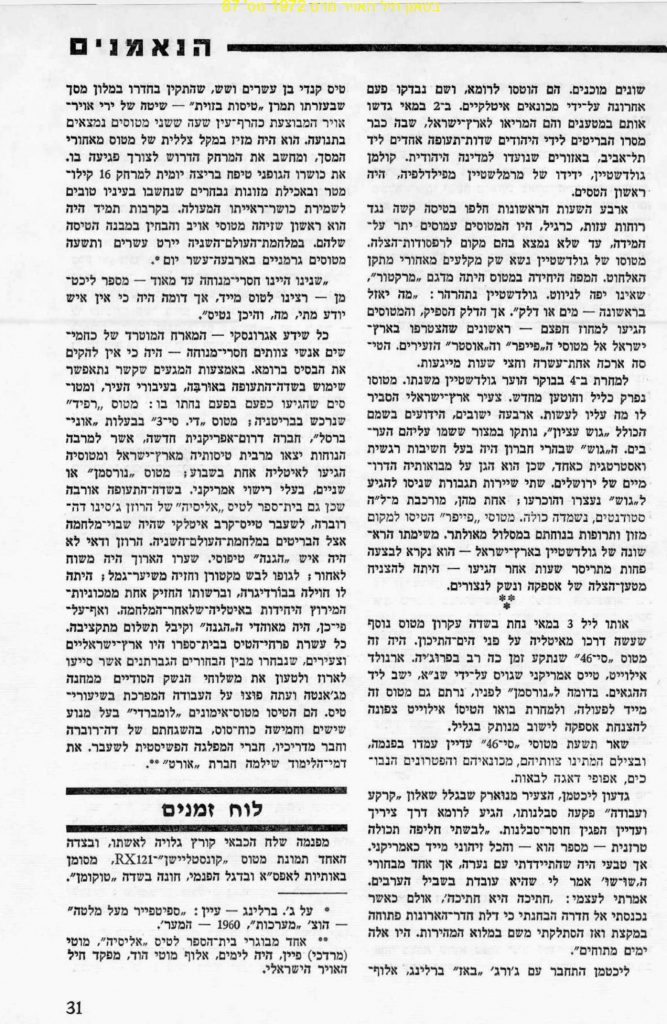
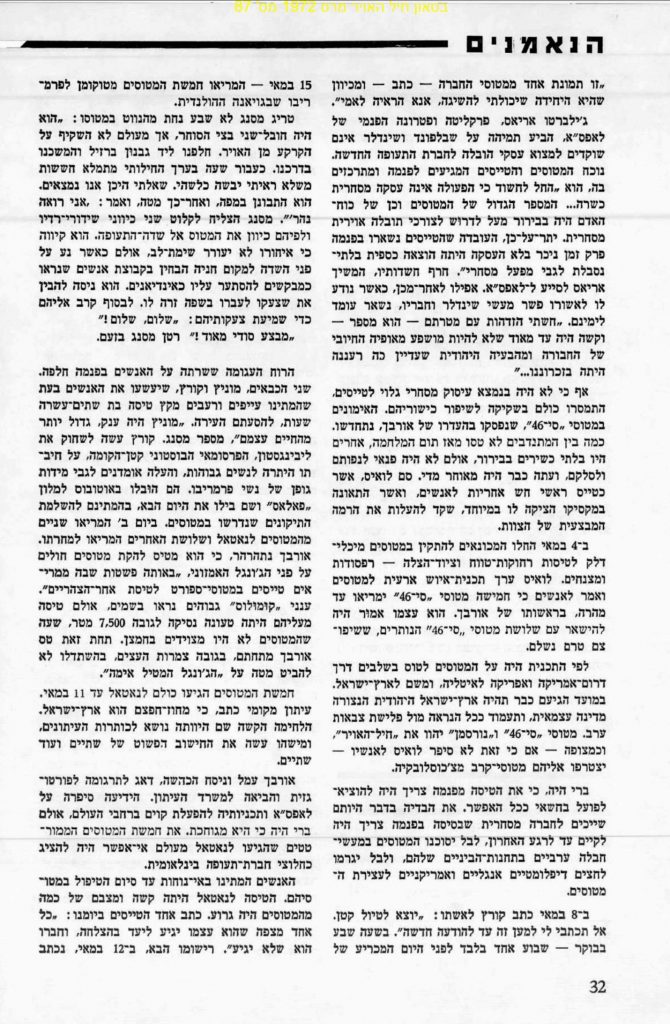
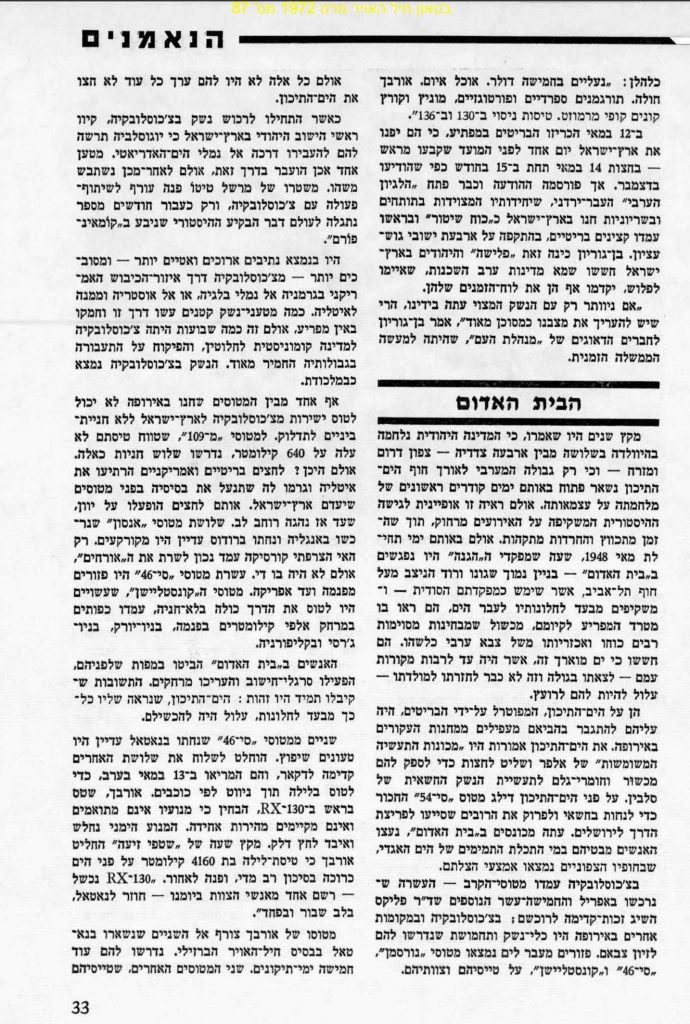
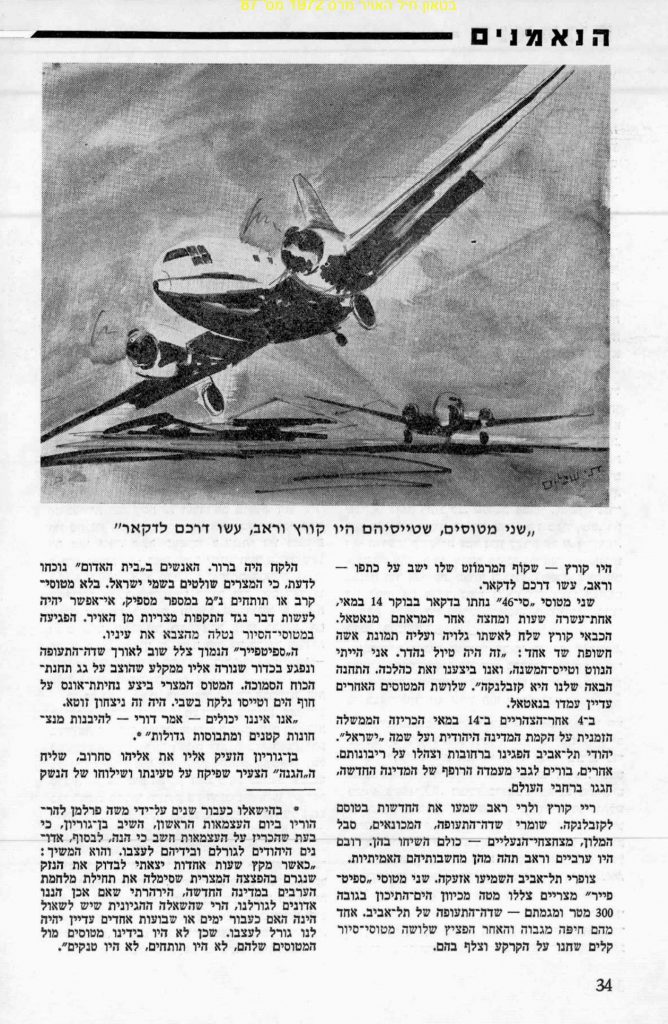
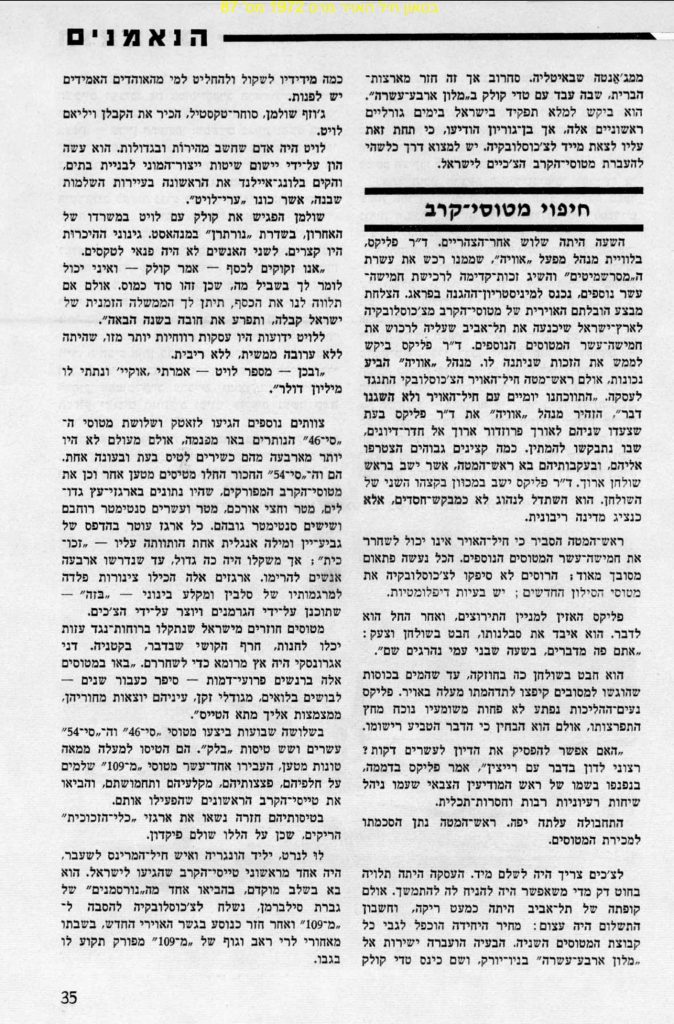
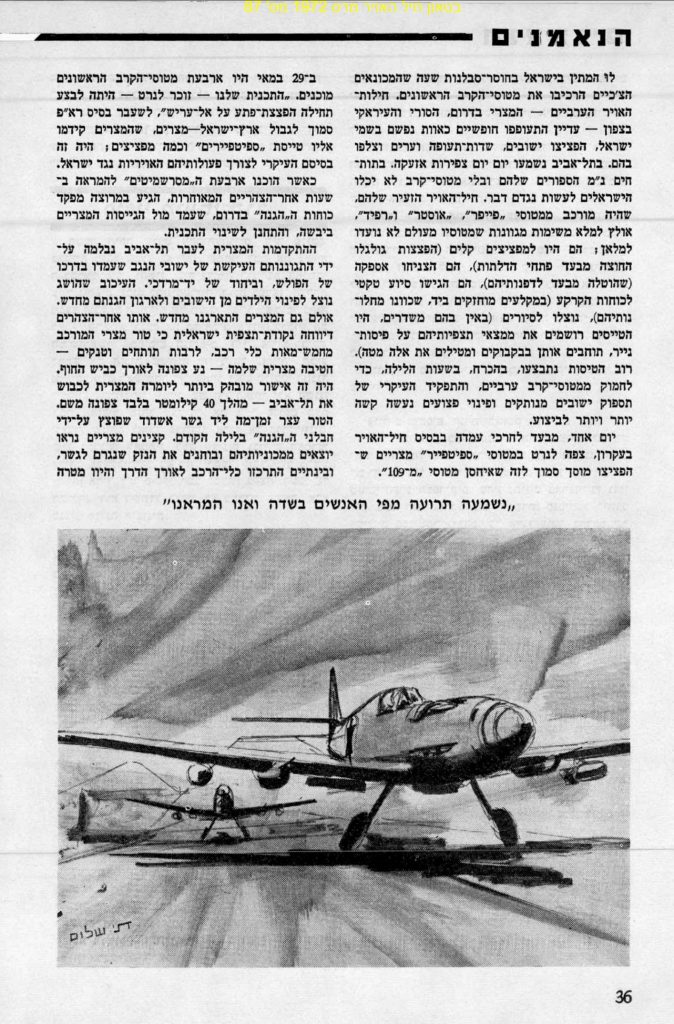
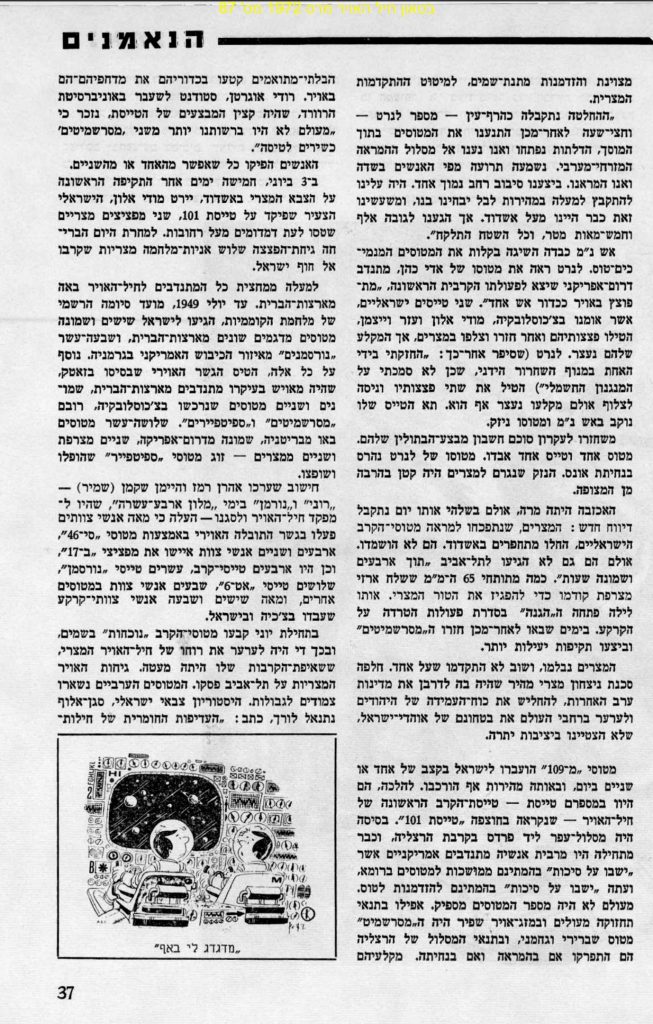
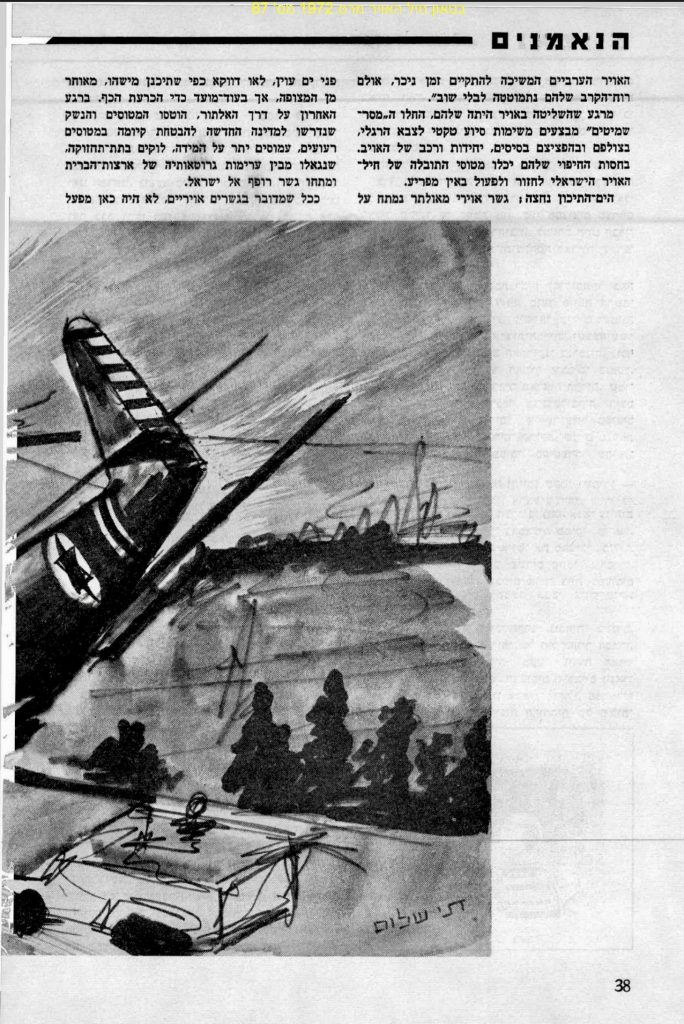
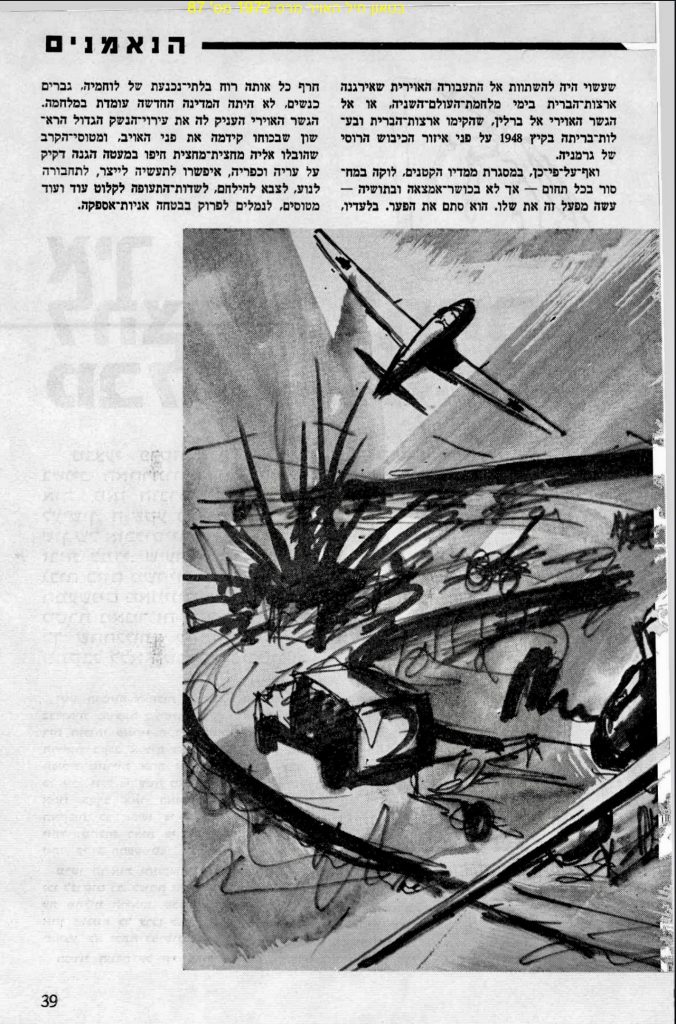
The Pledge by Leonard Slater - Pages related to Danny Fliderblum

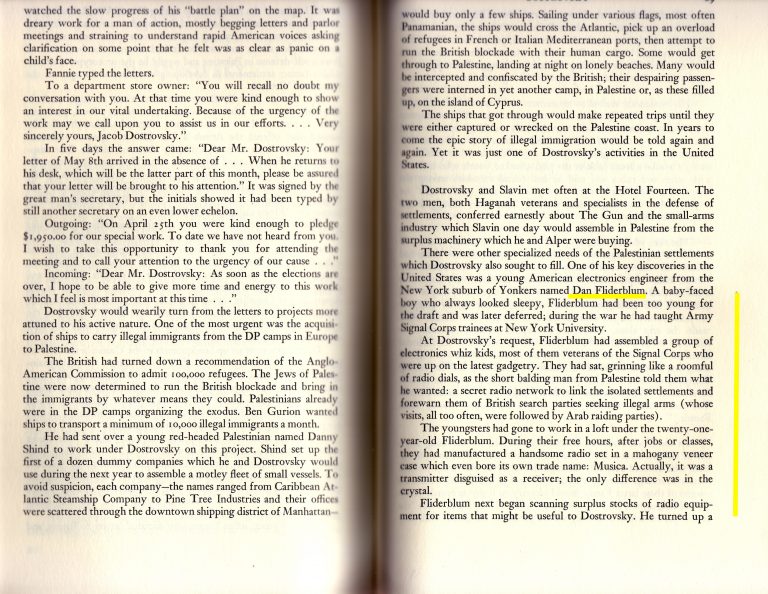
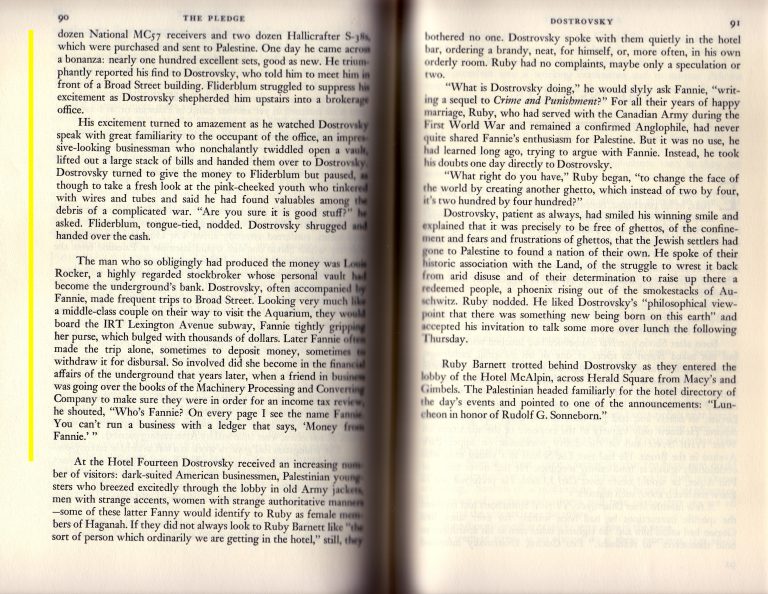
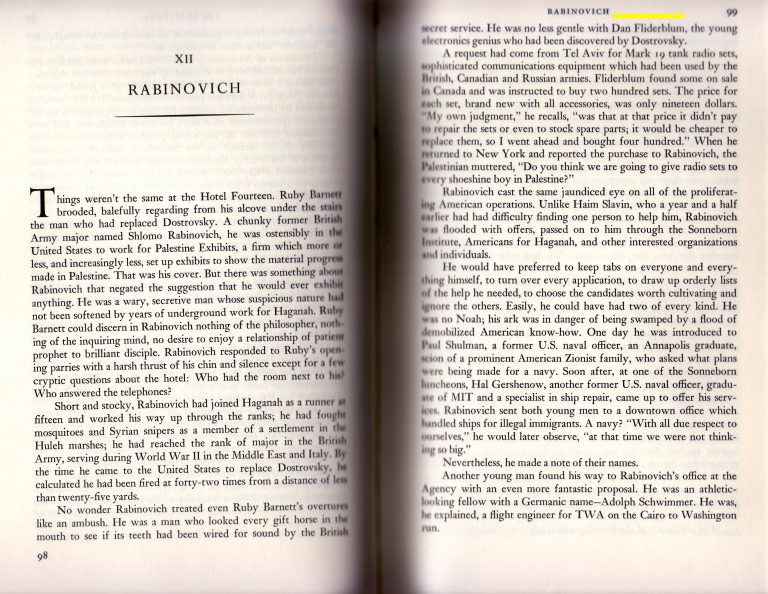
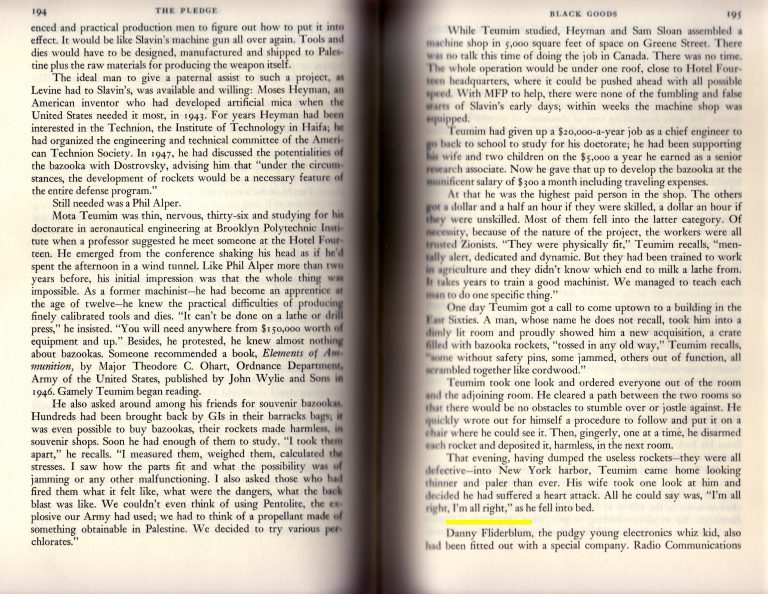
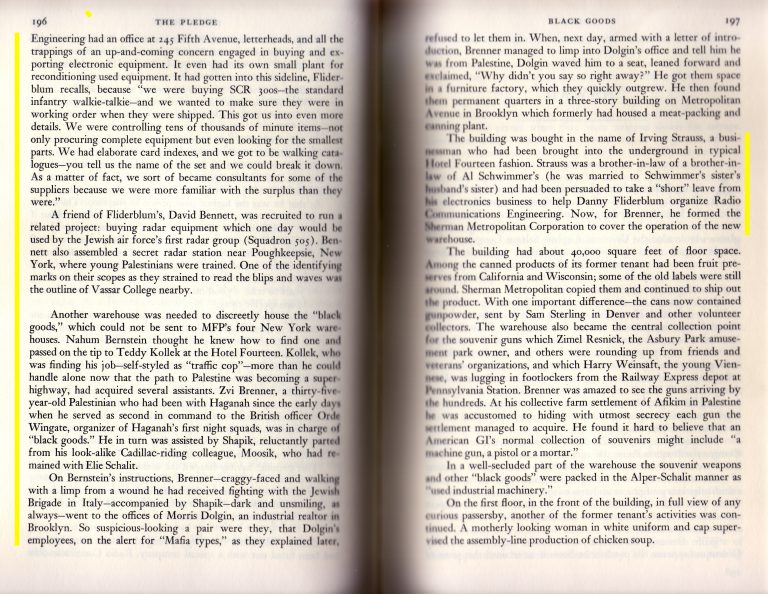
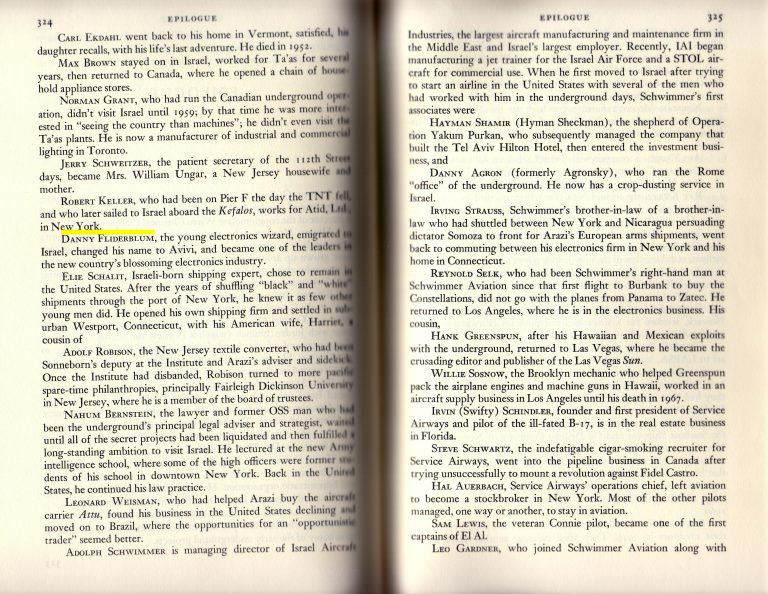
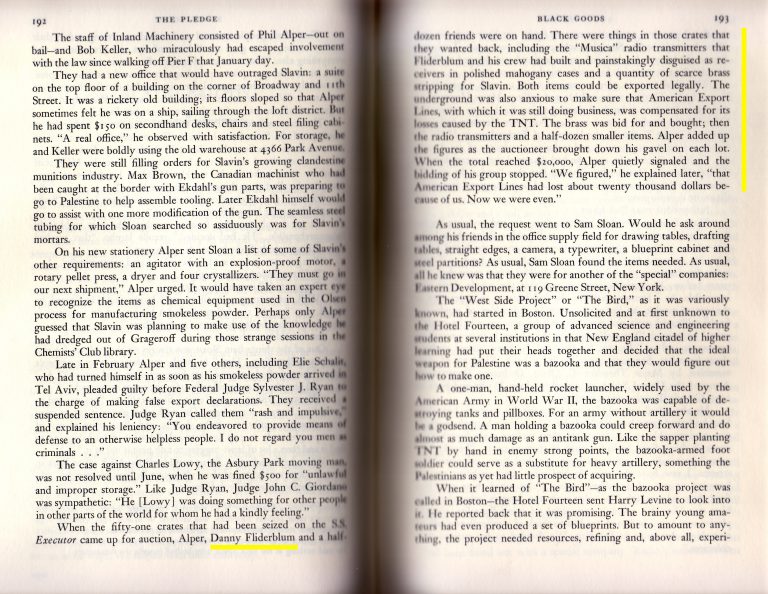
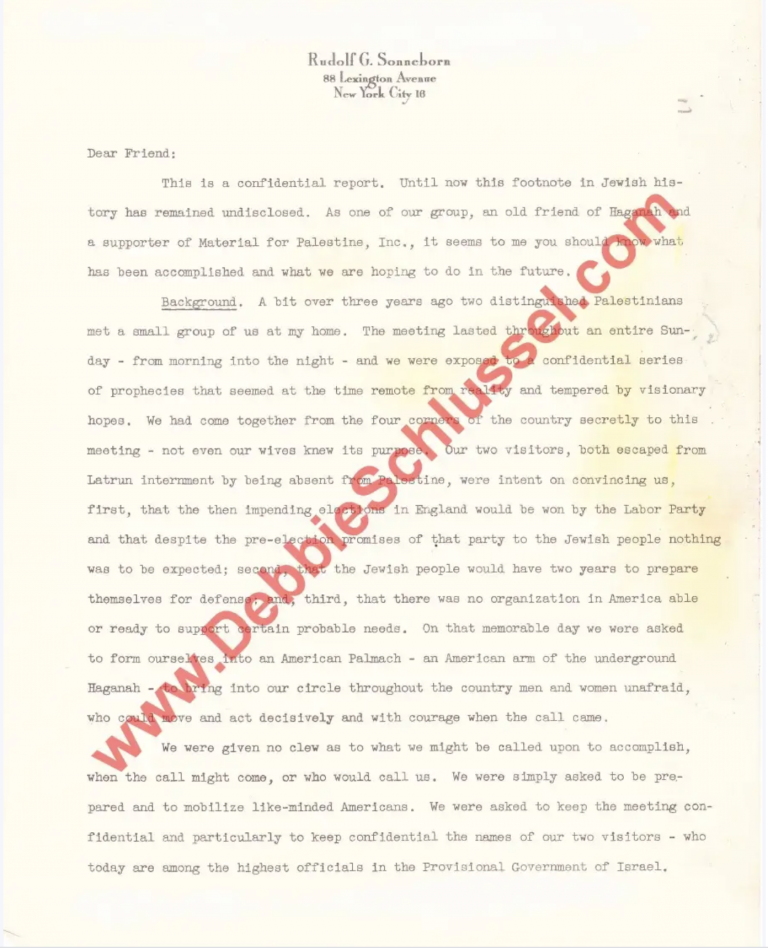
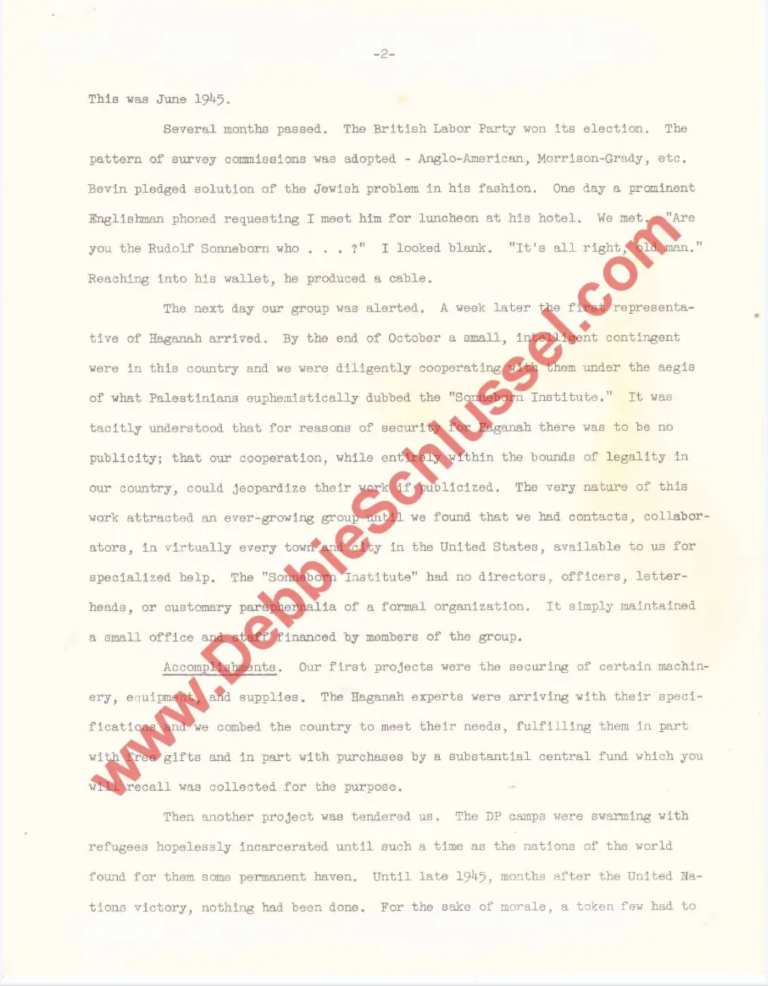
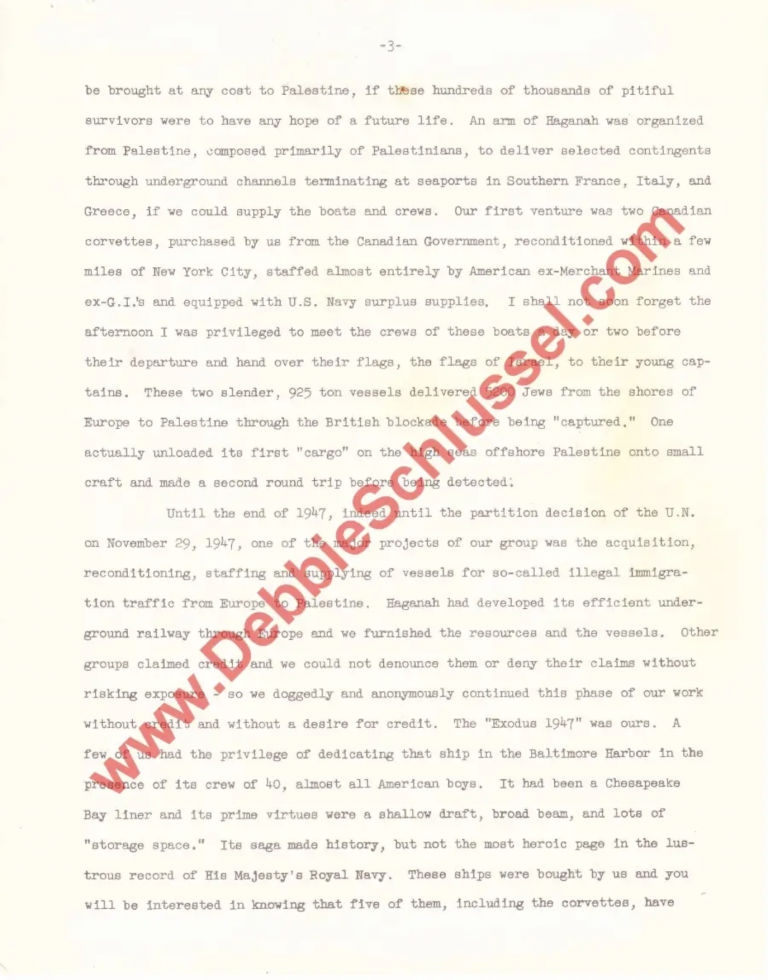
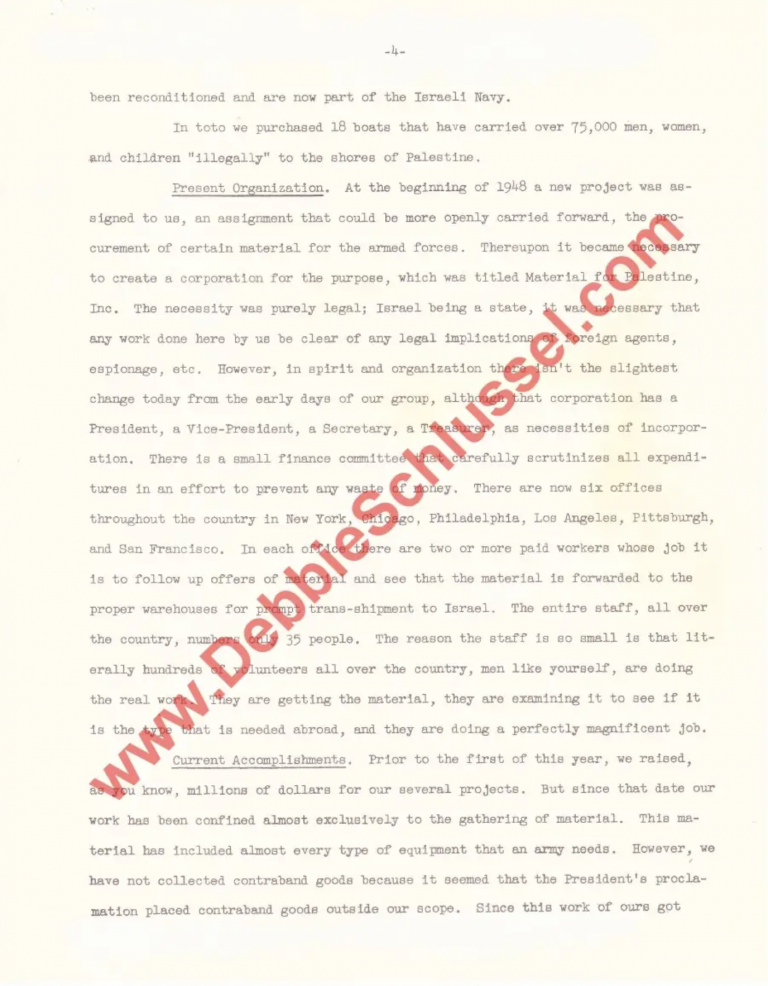
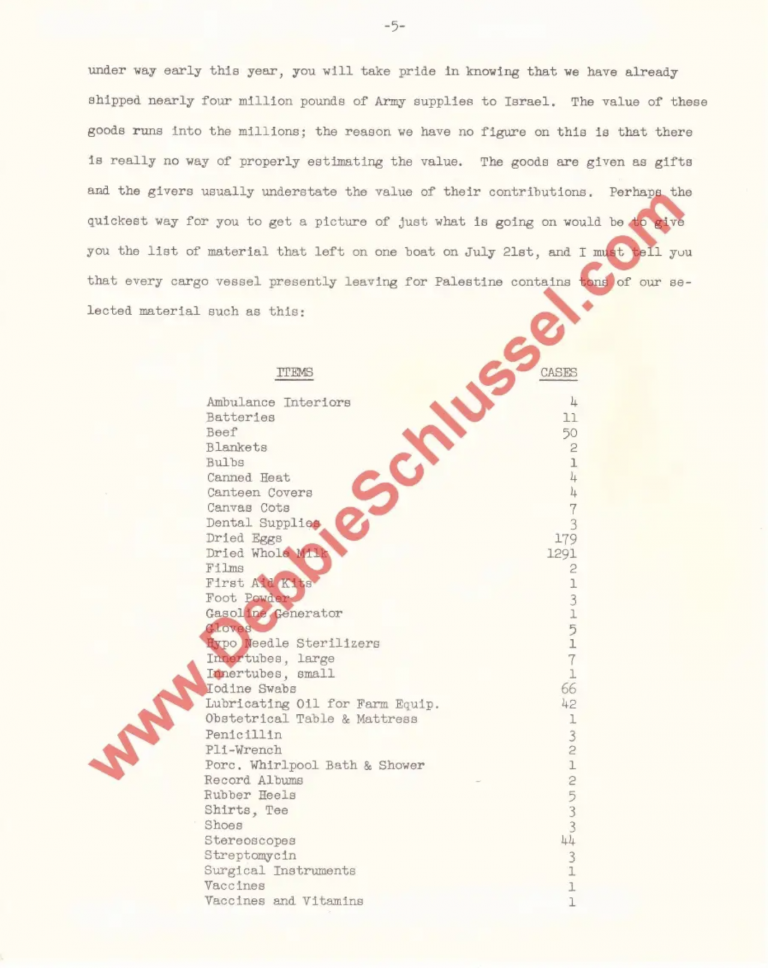
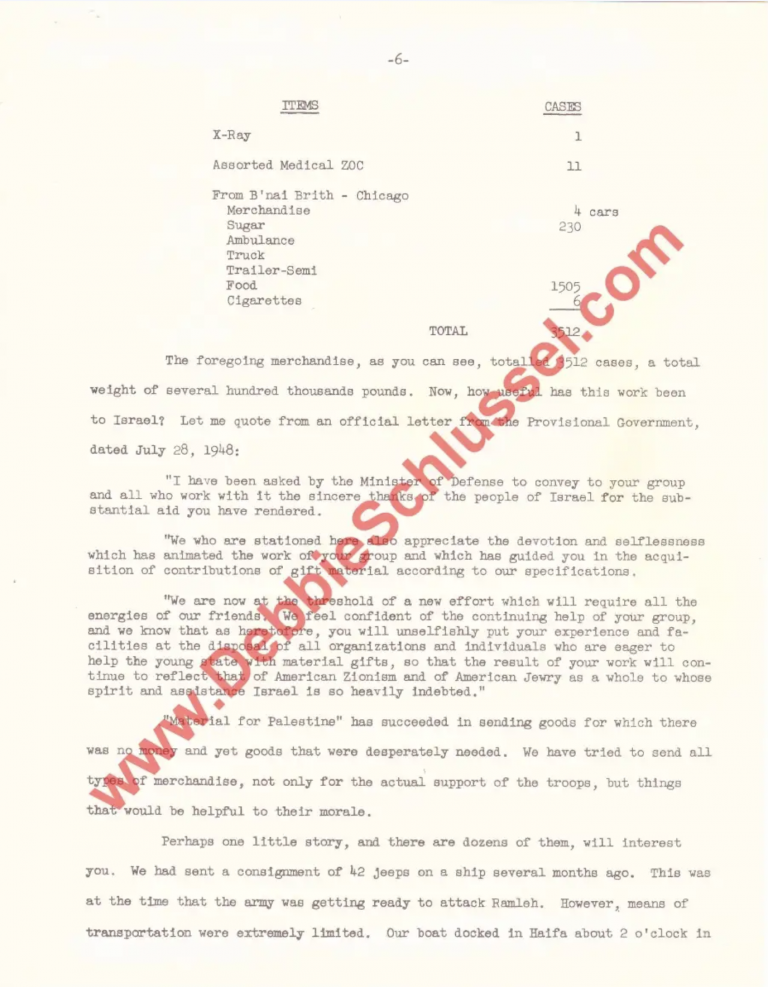
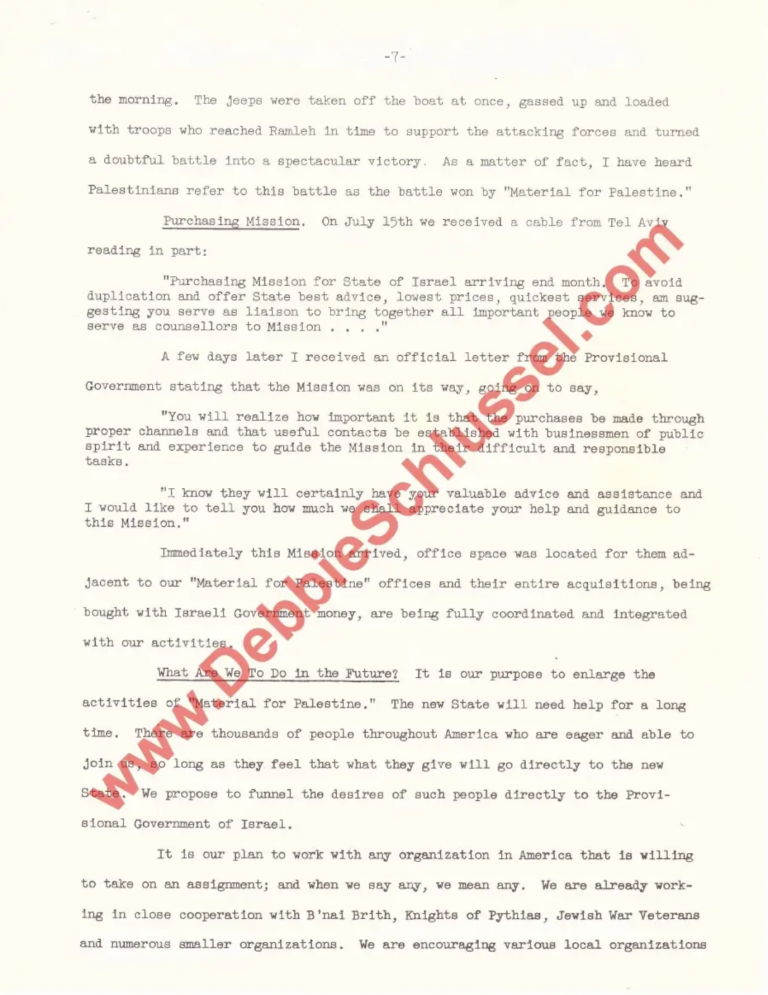
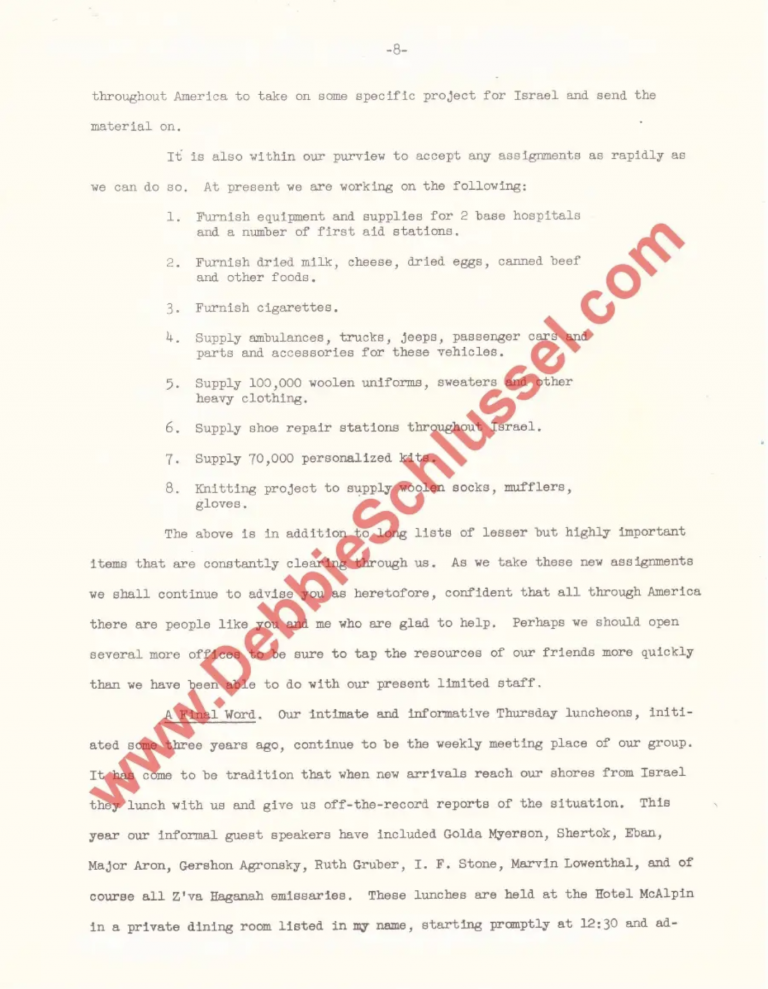
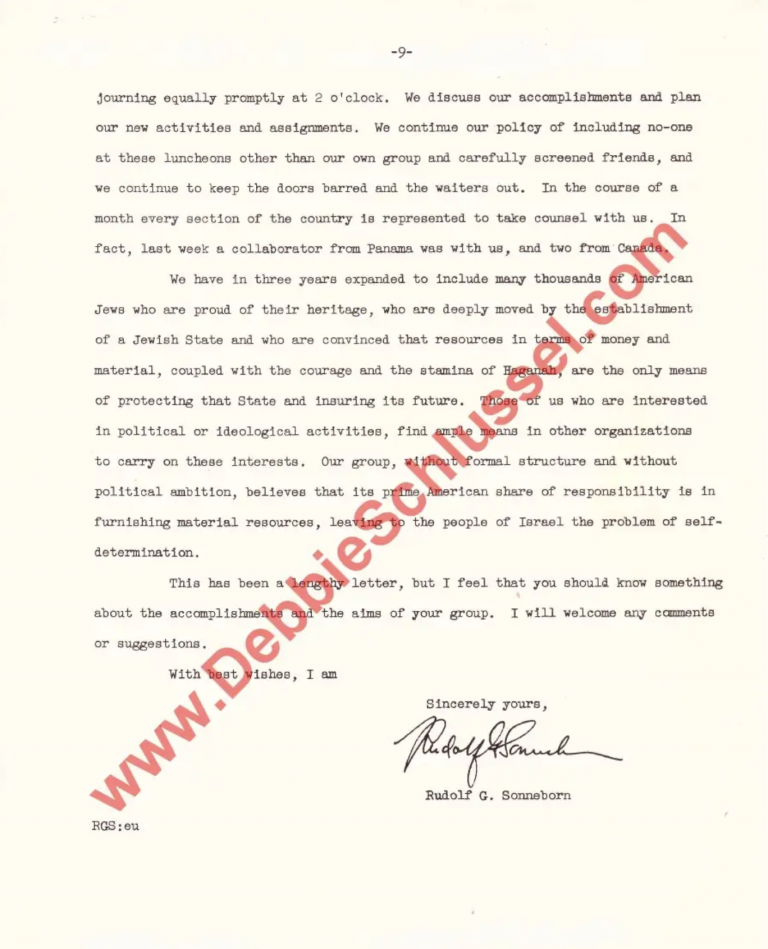
Danny Fliderblum-Avivi, Passover, 1957. Top row, second from left, Courtesy of Zehav Zohar
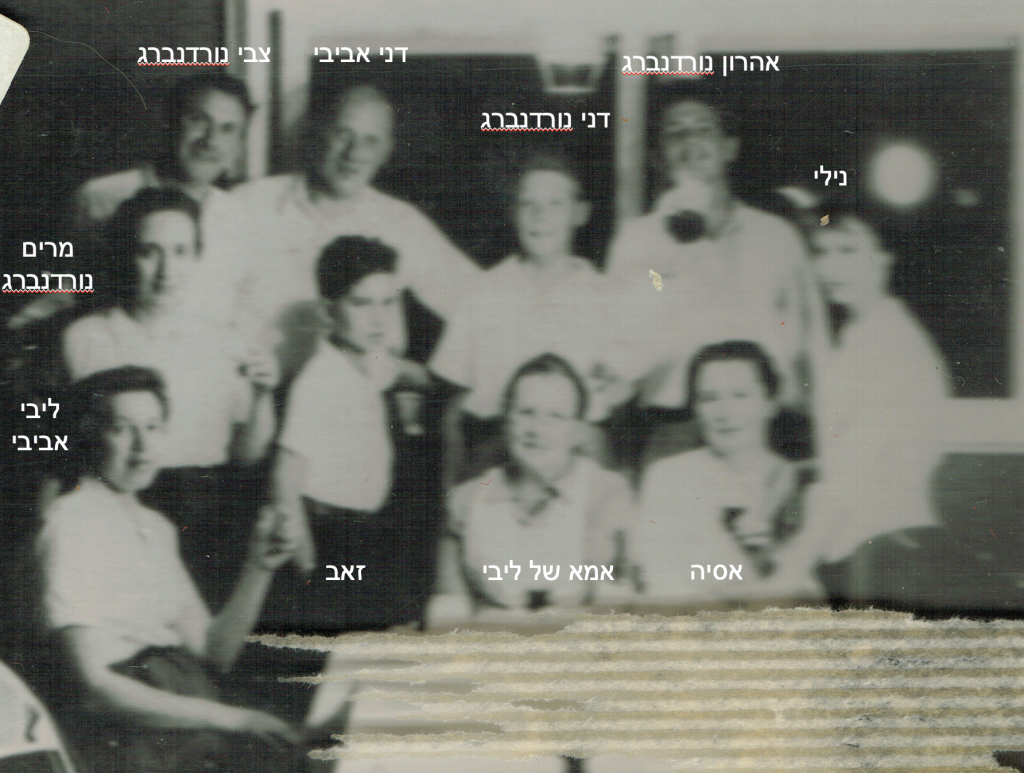
Greetings to Daniel Fliderblum's Bar Mitzvah from his mother's sister, Esther Rosa and her husband Joshua from Poland, 1938. Esther Rosa, Joshua and the rest of the family were murdered in the Holocaust
